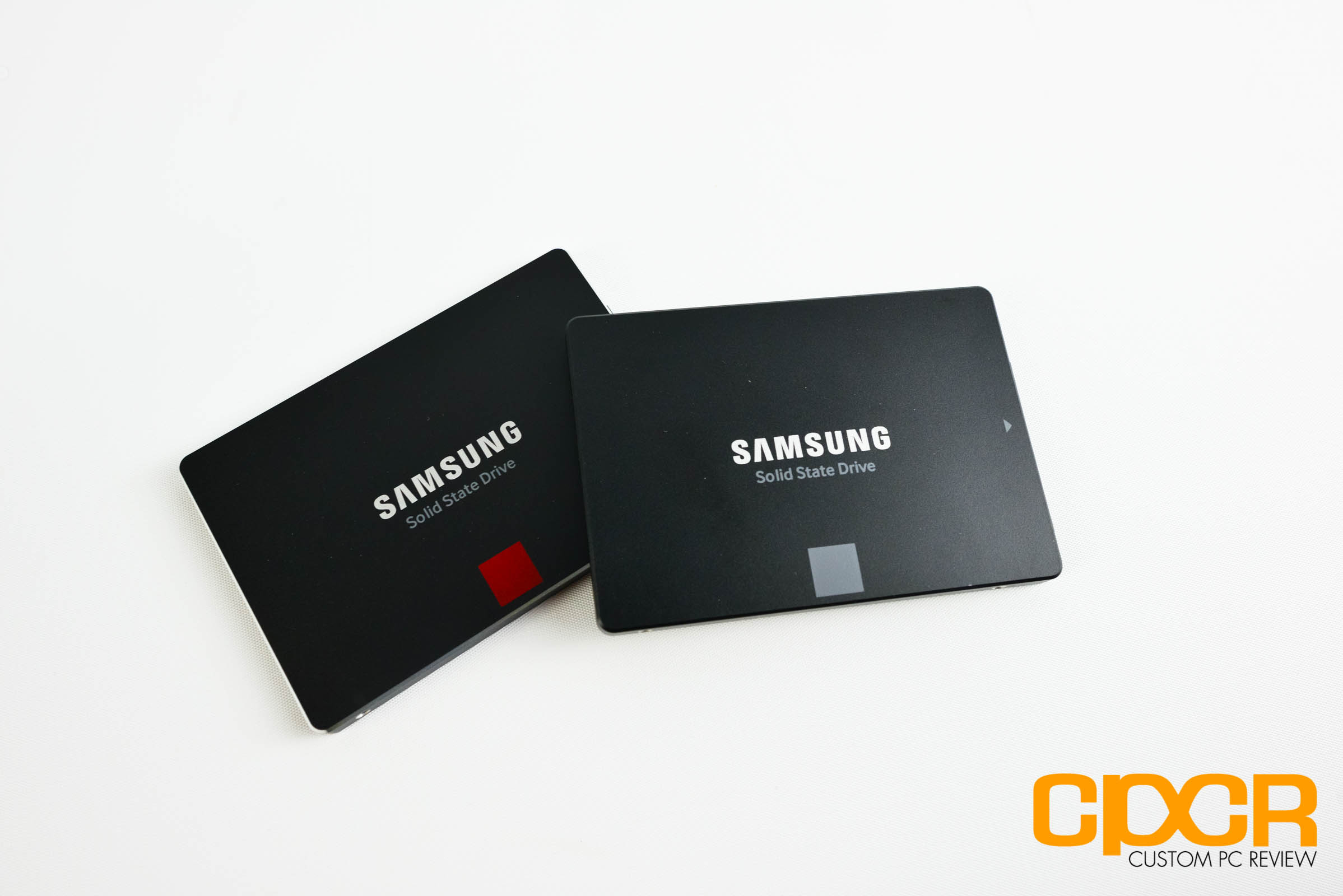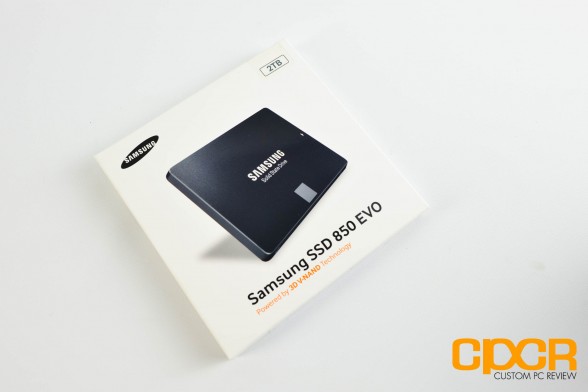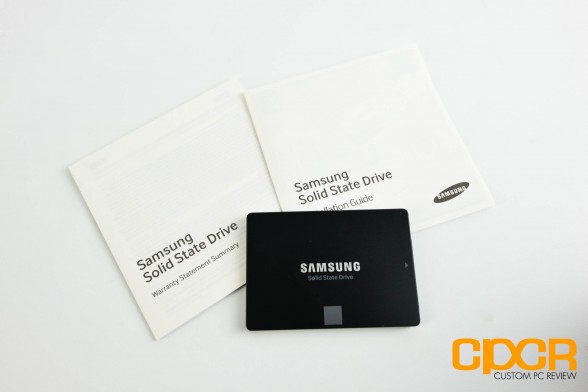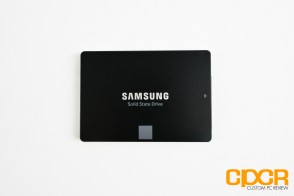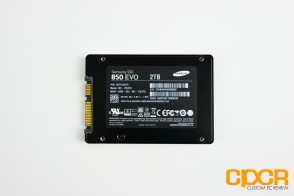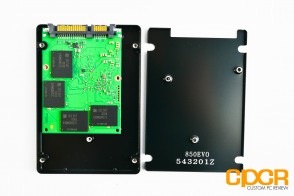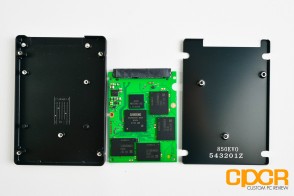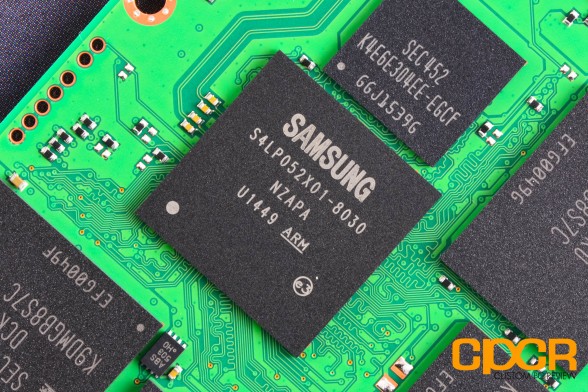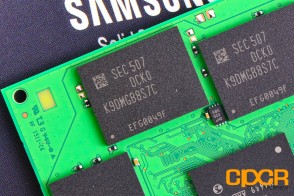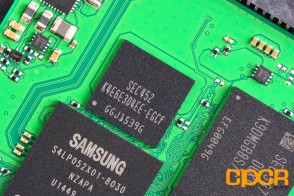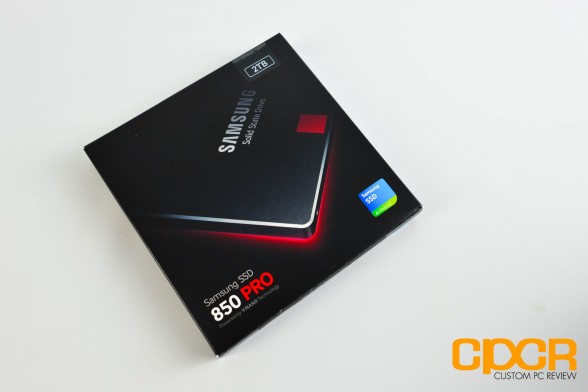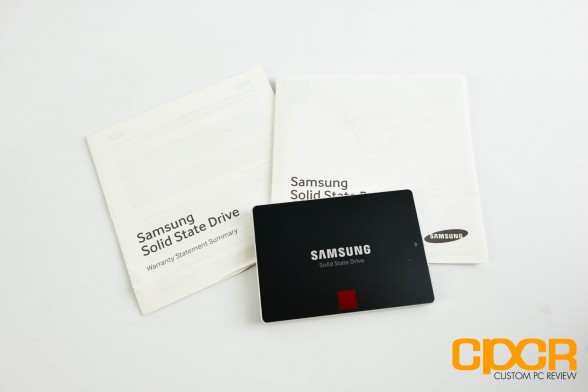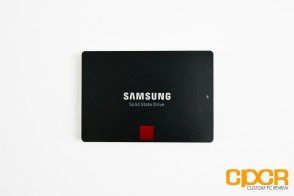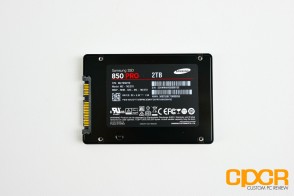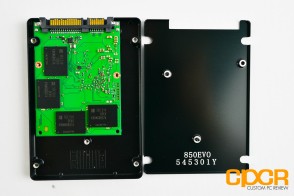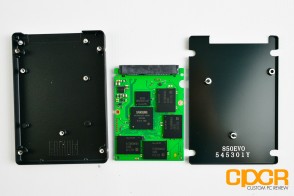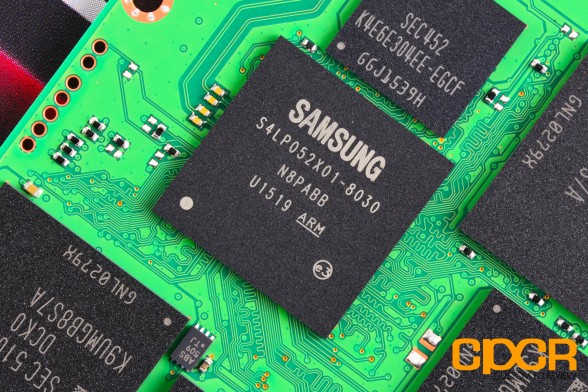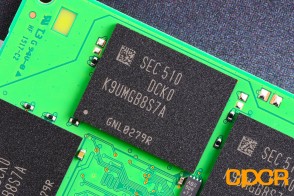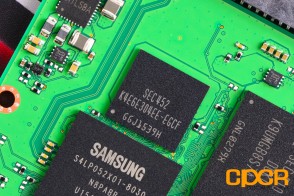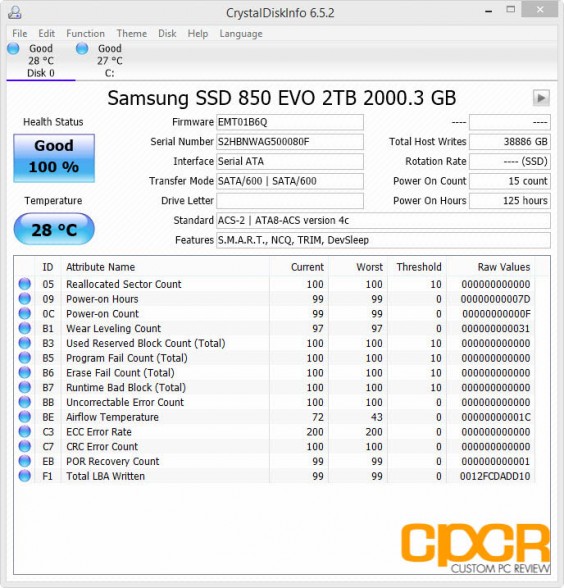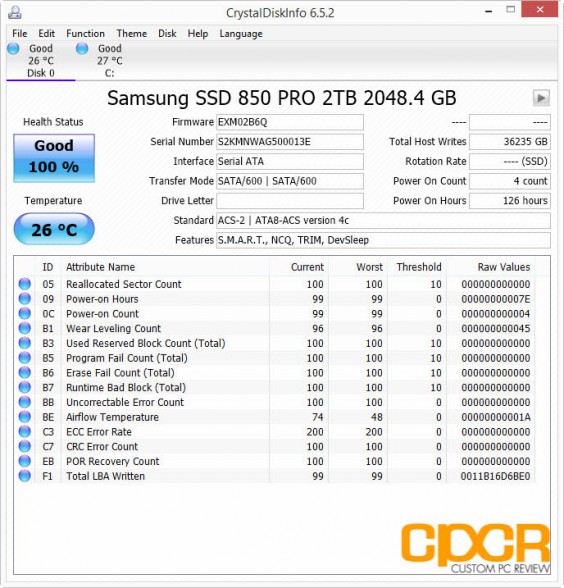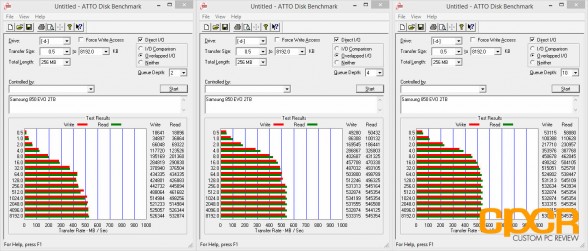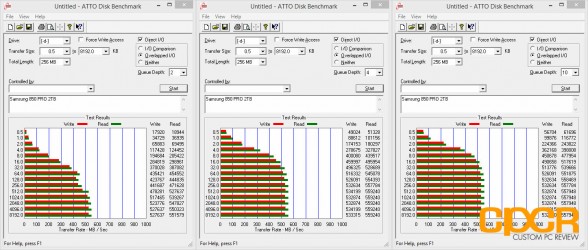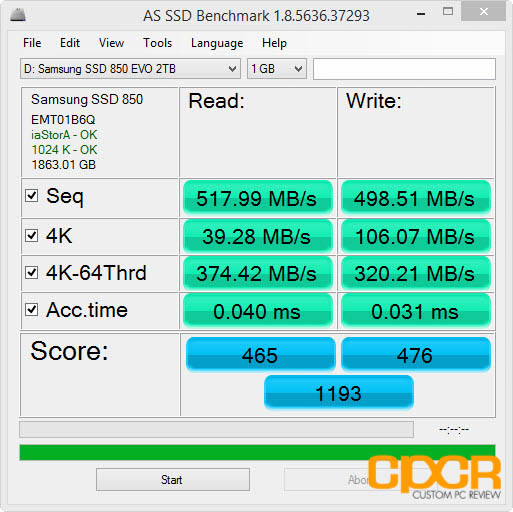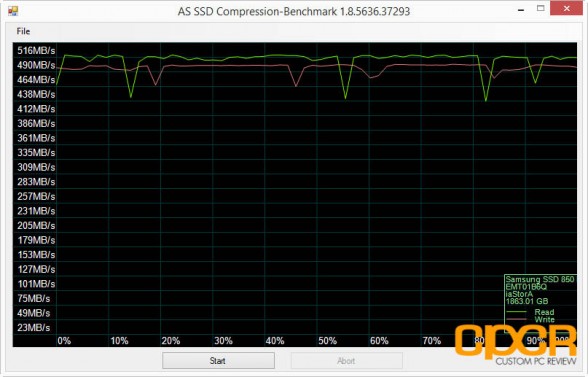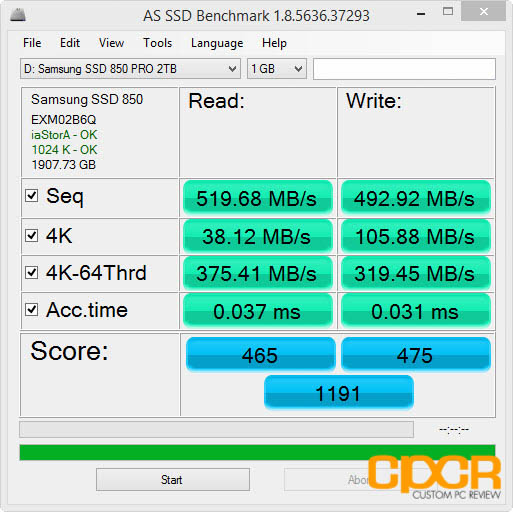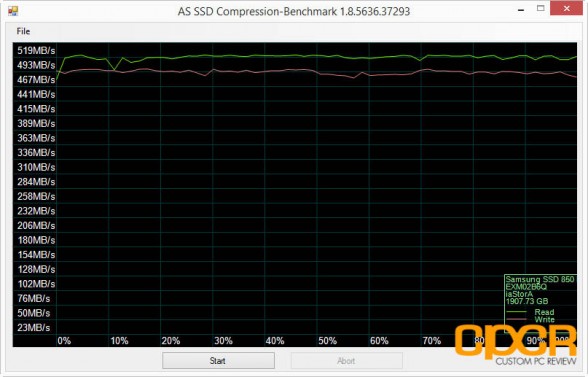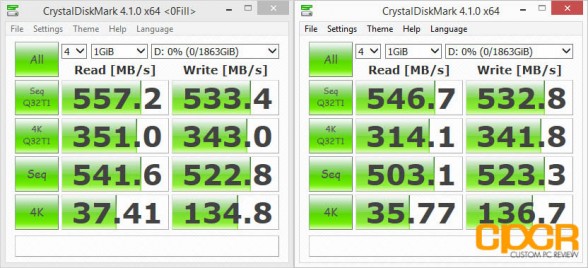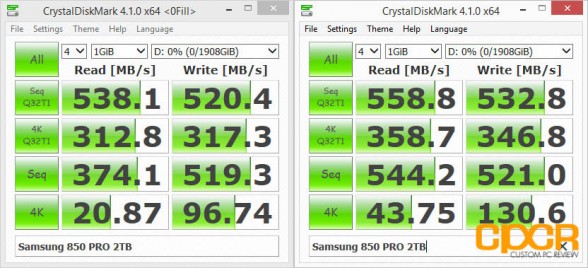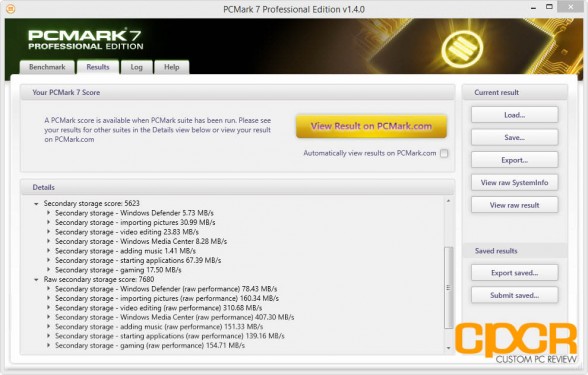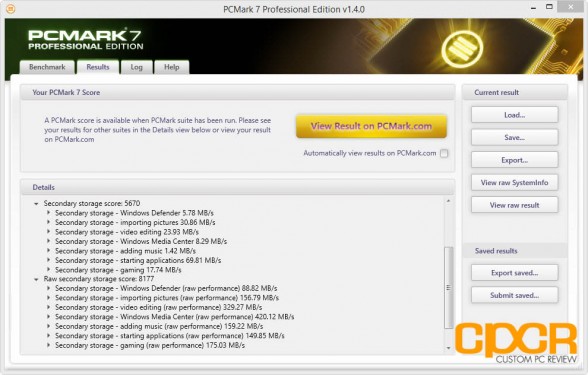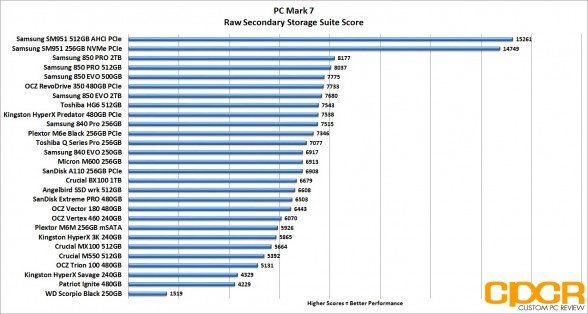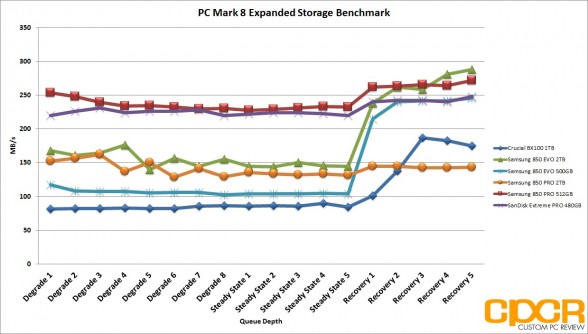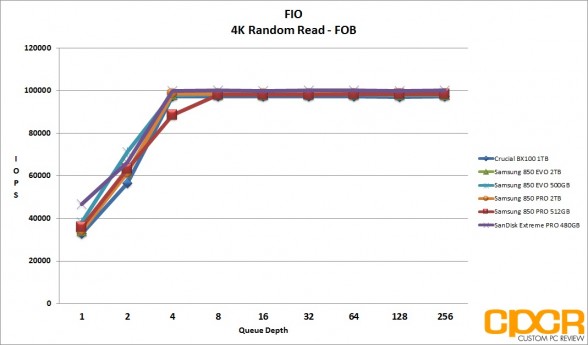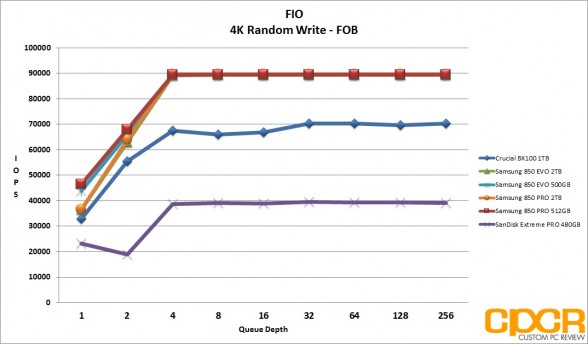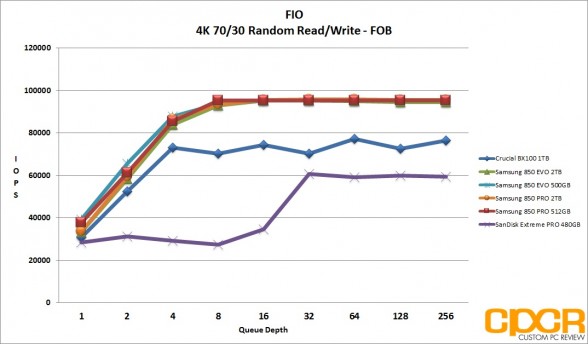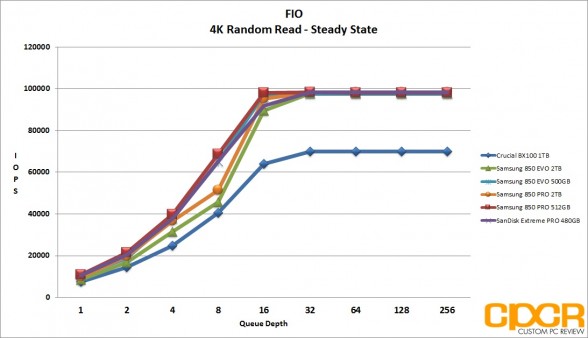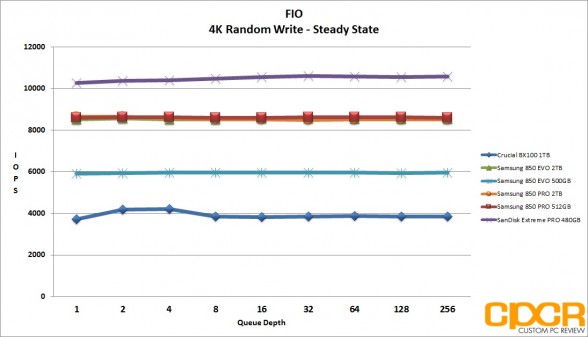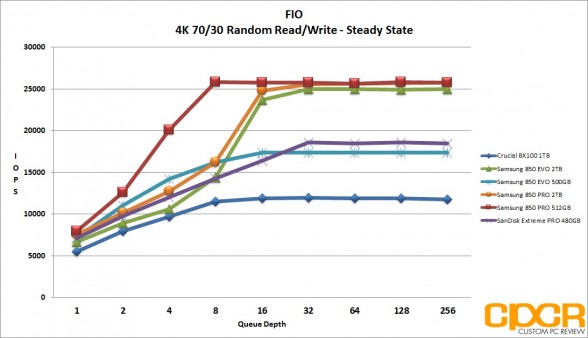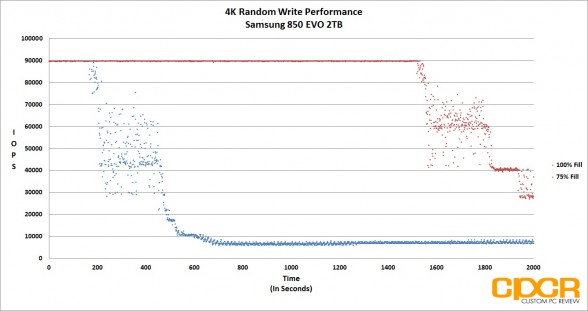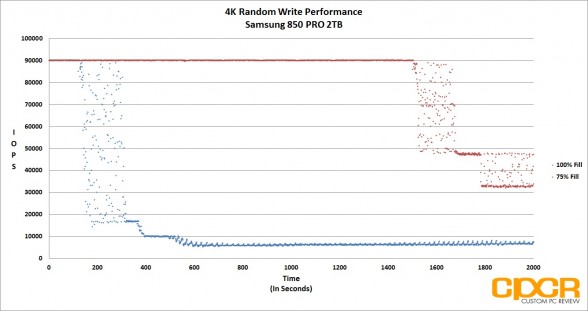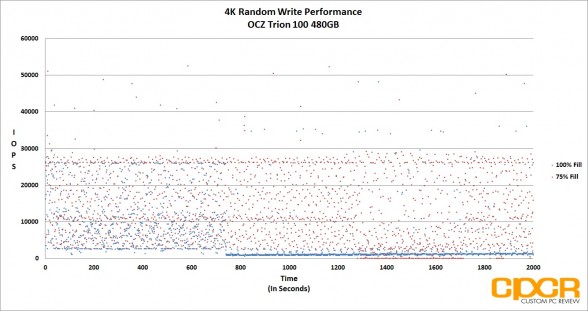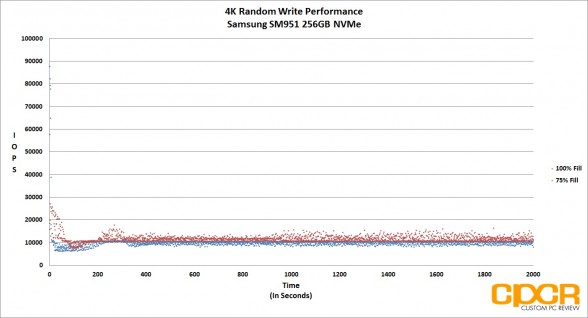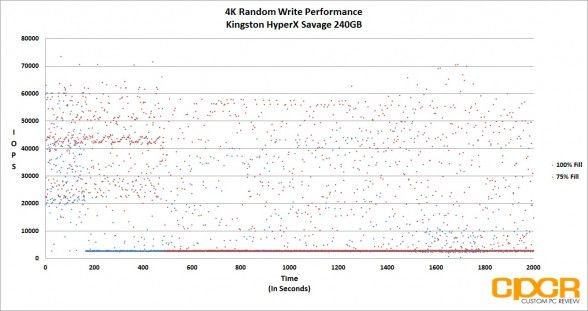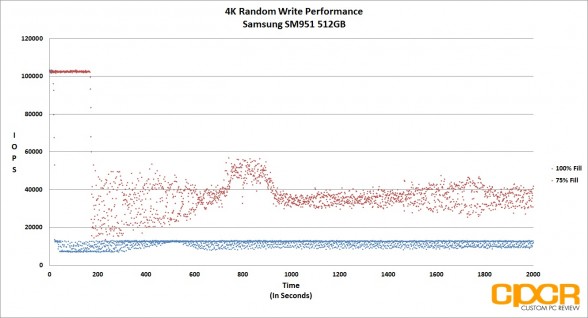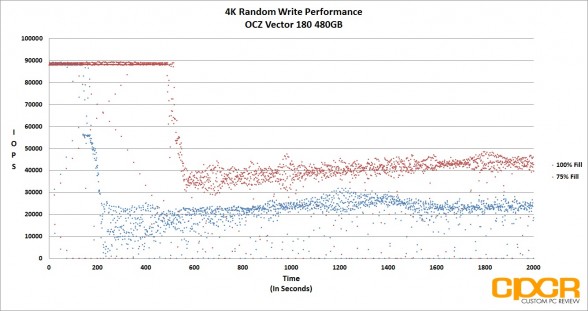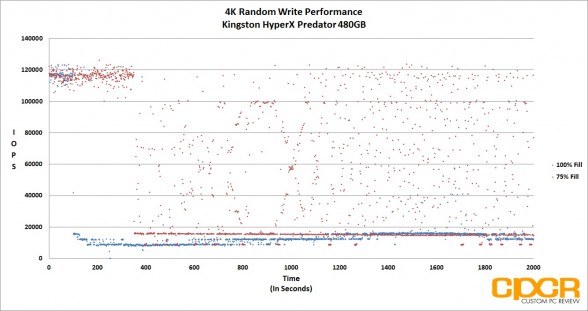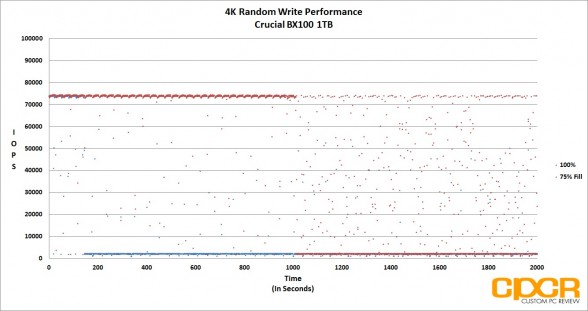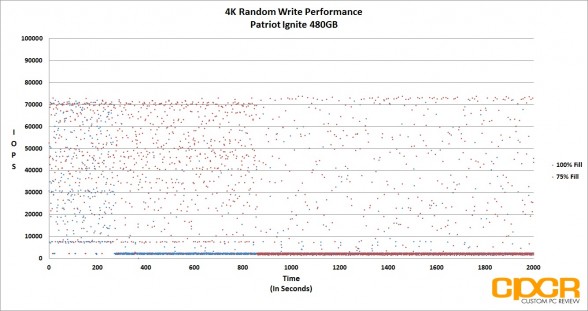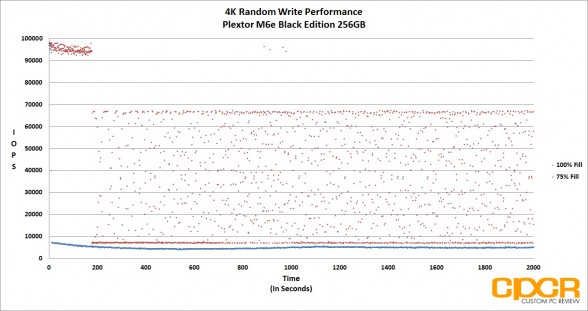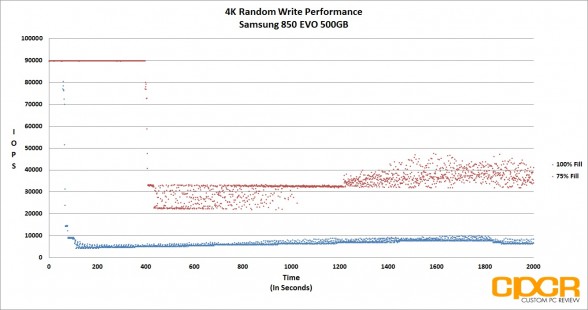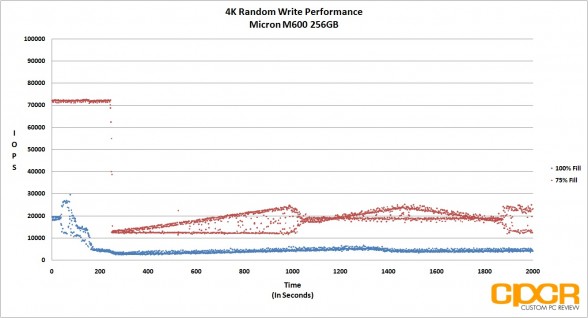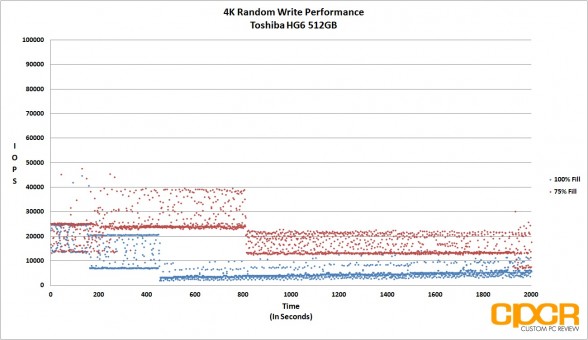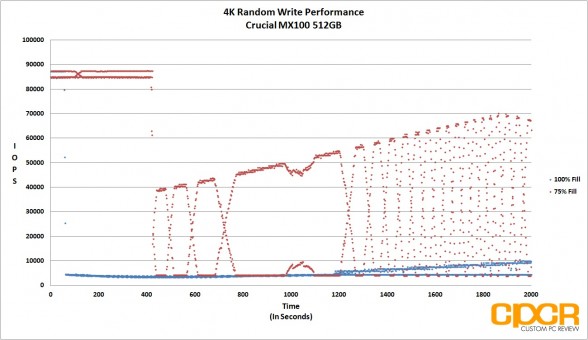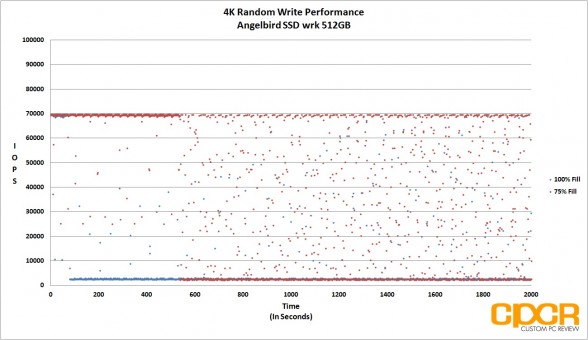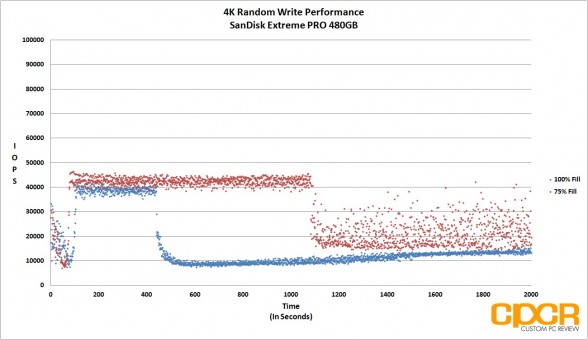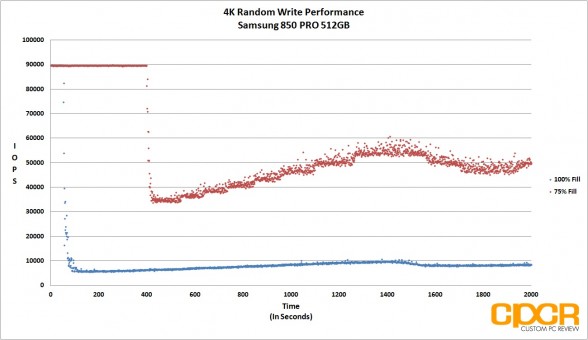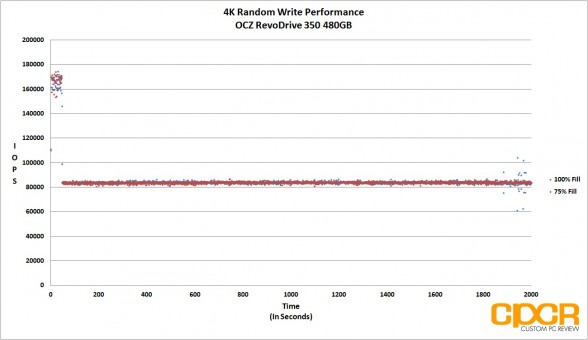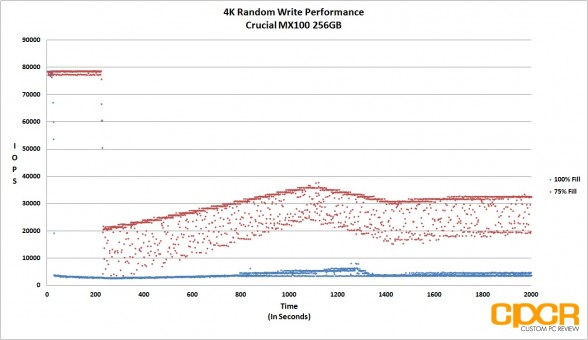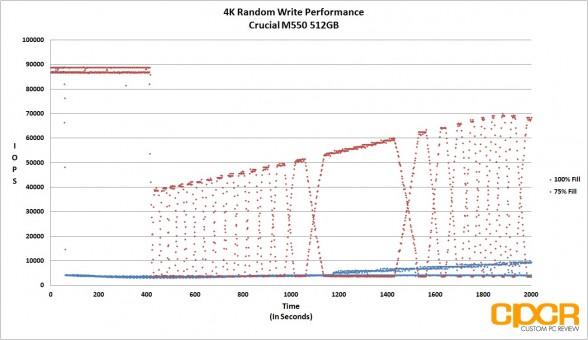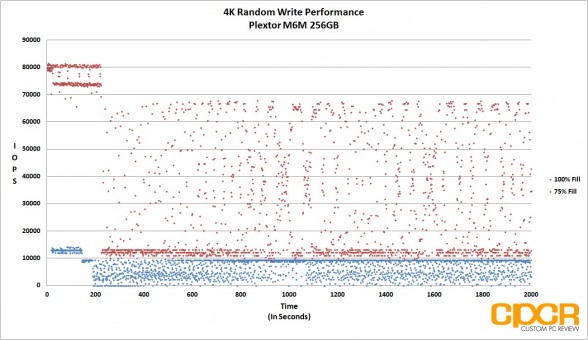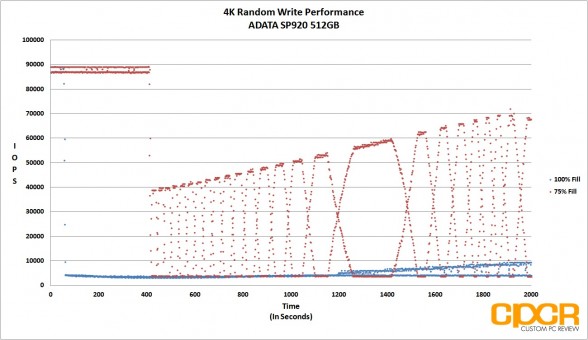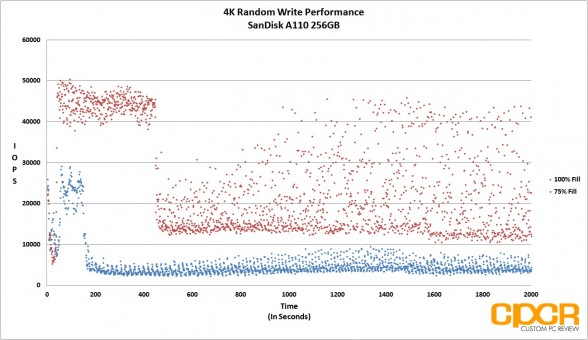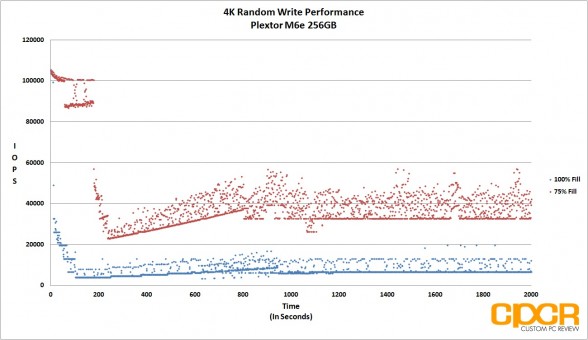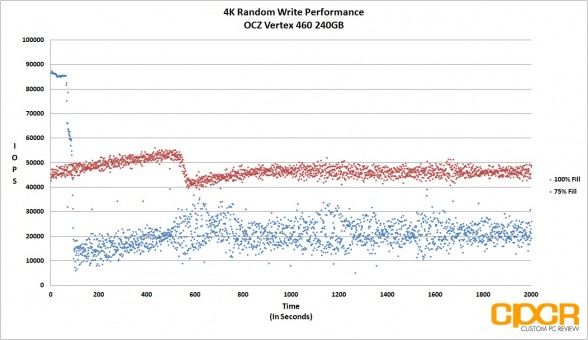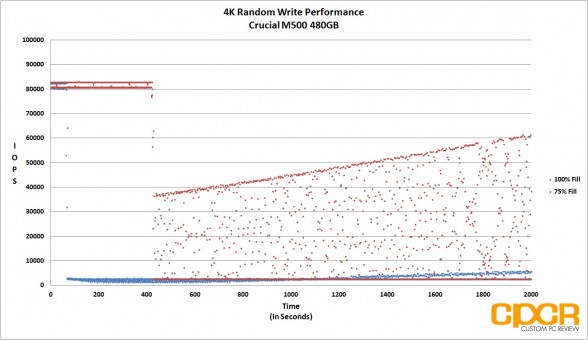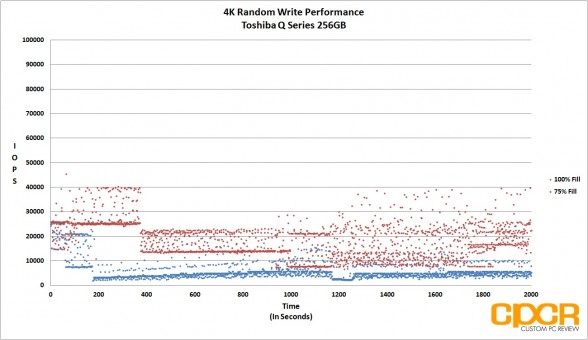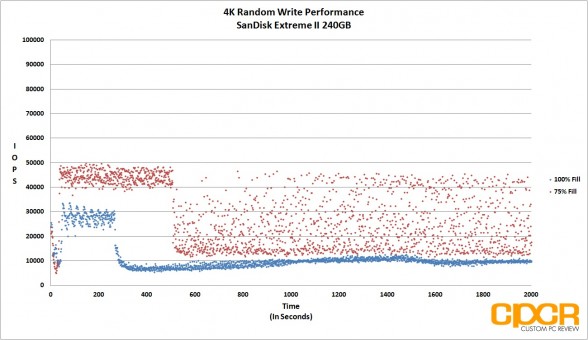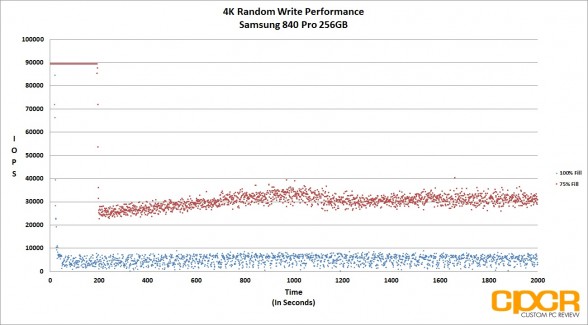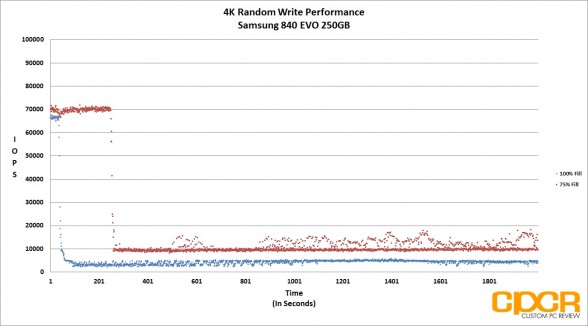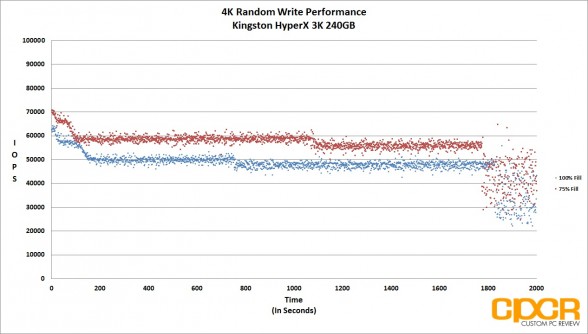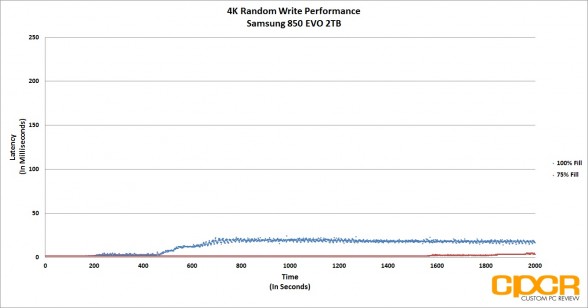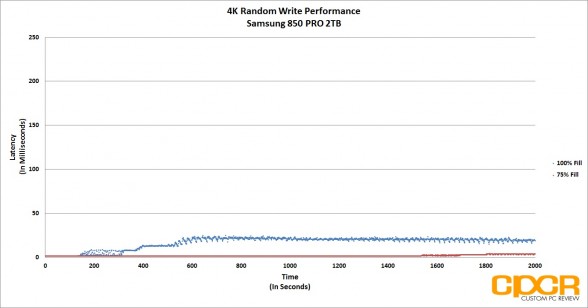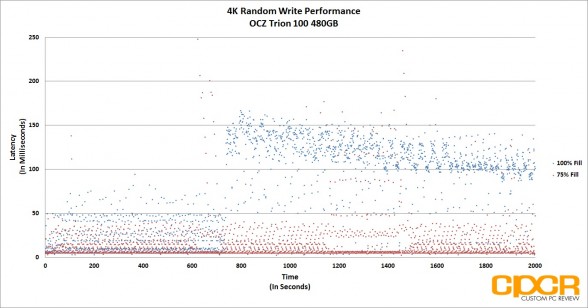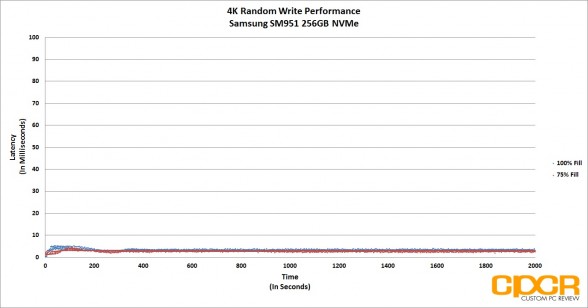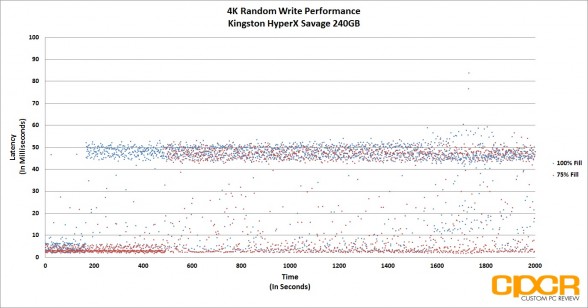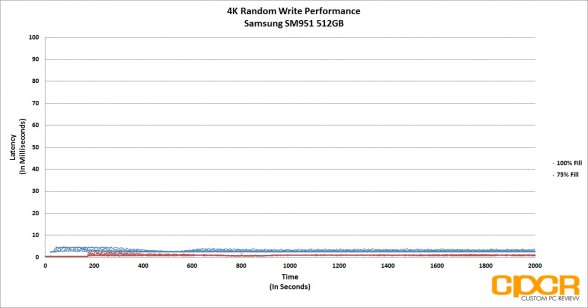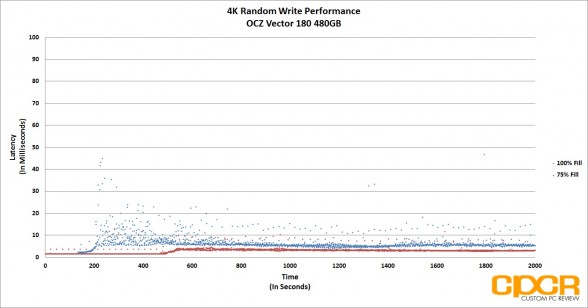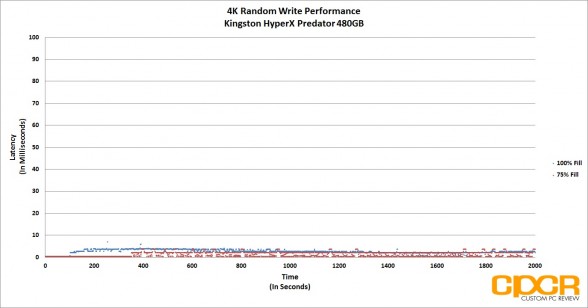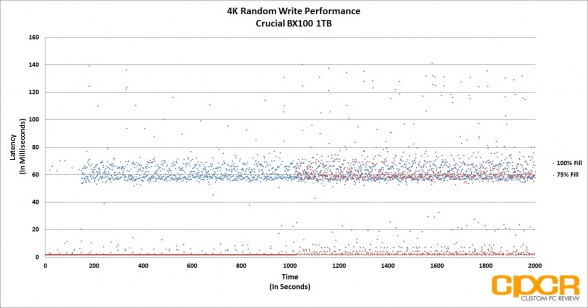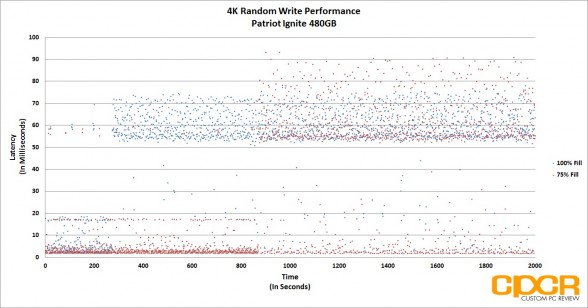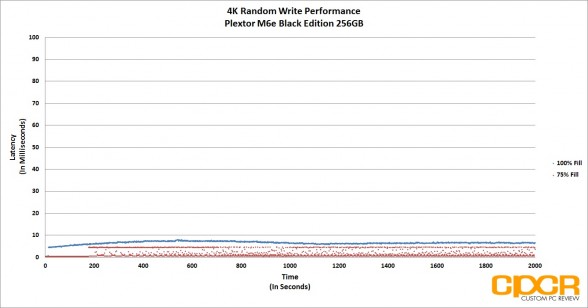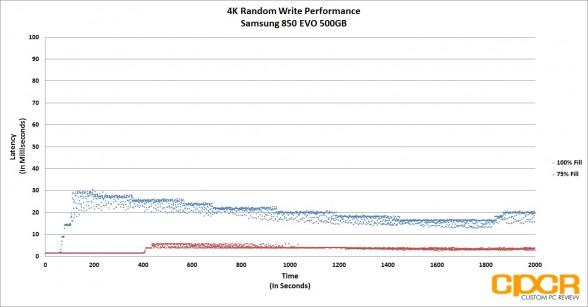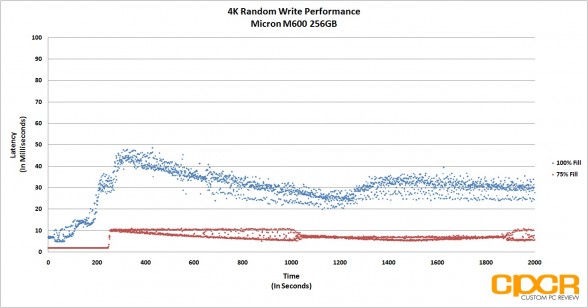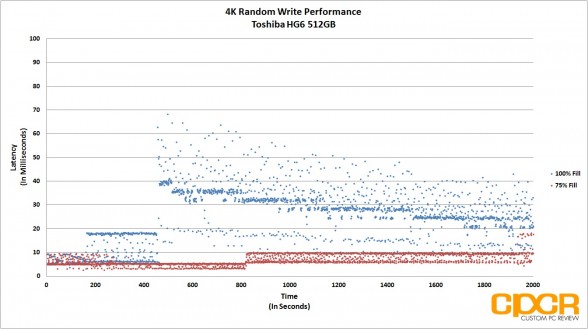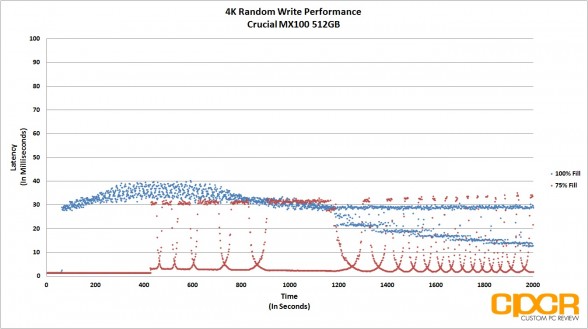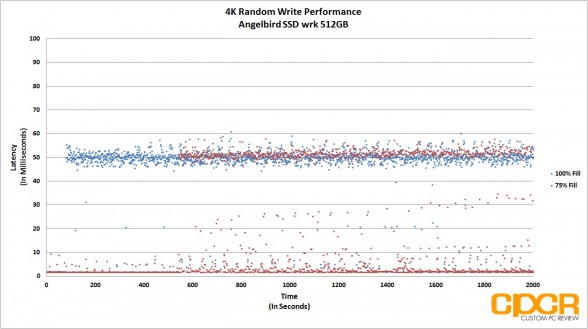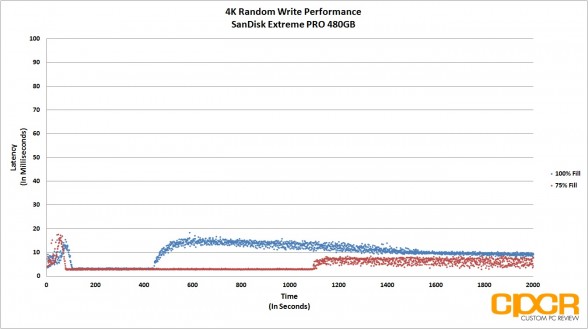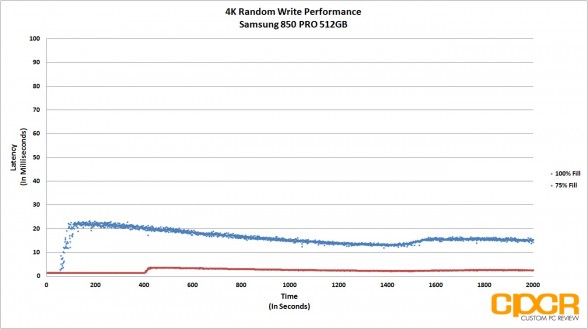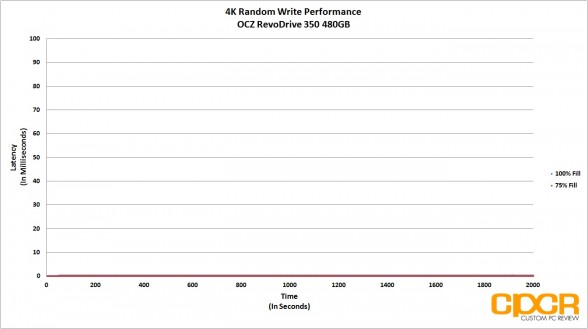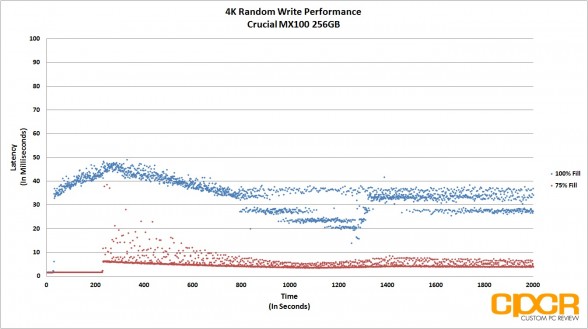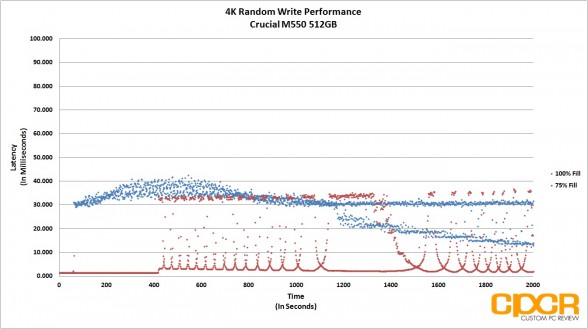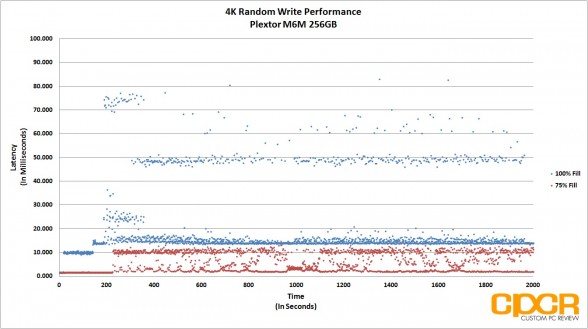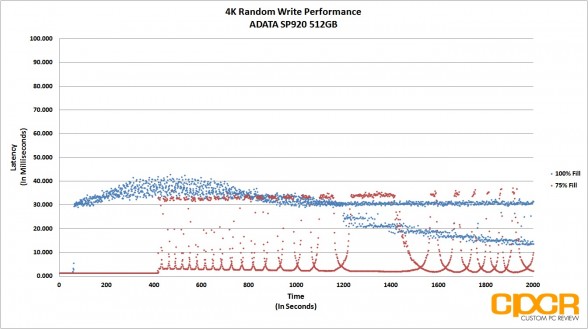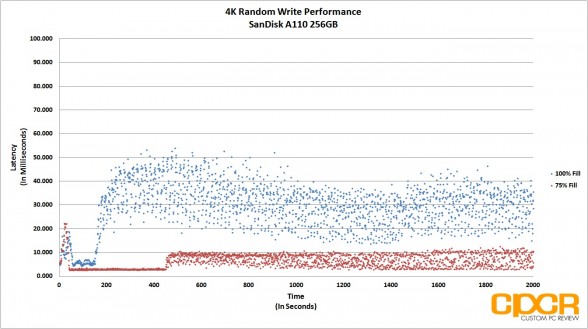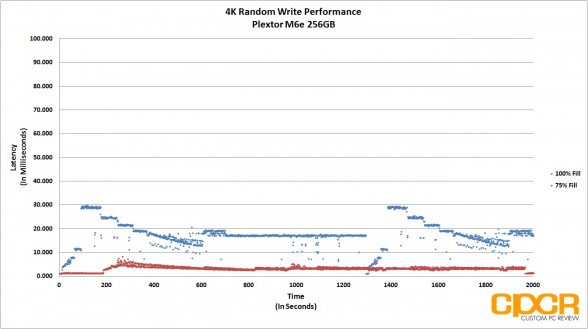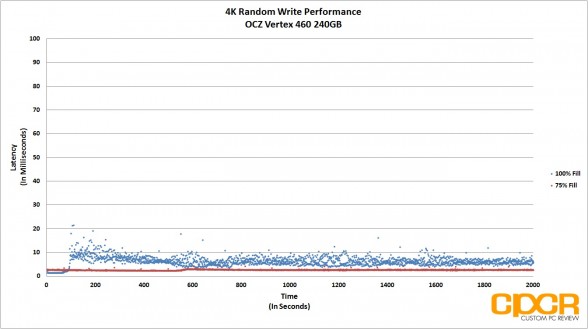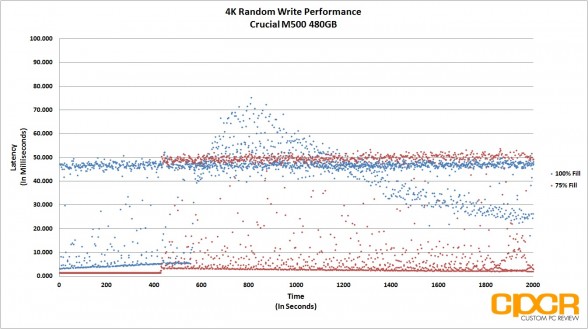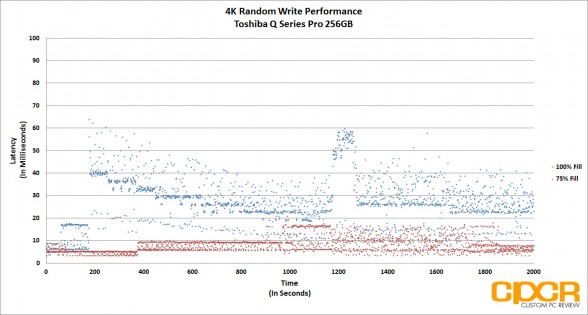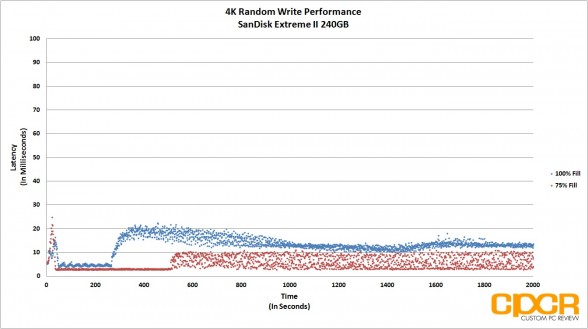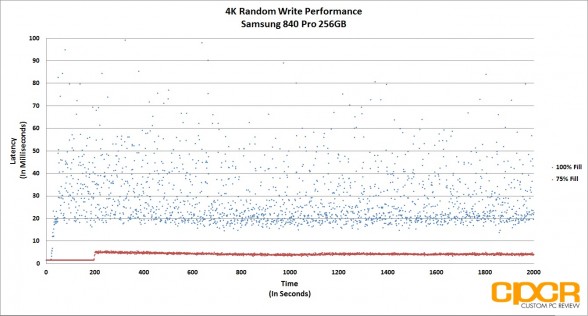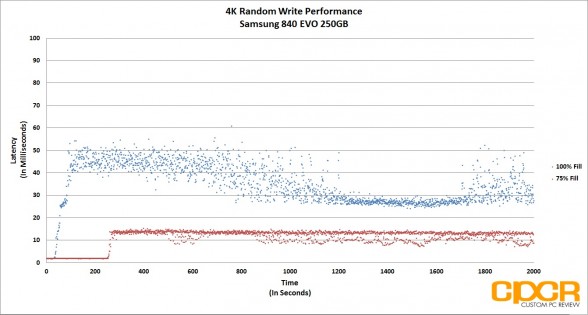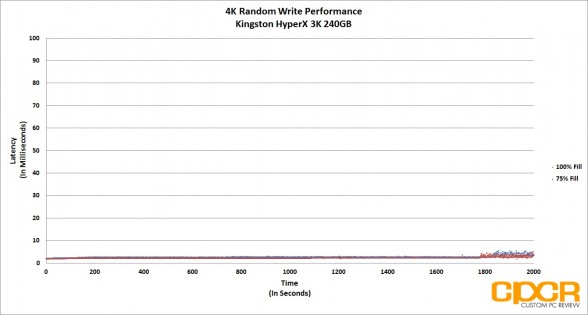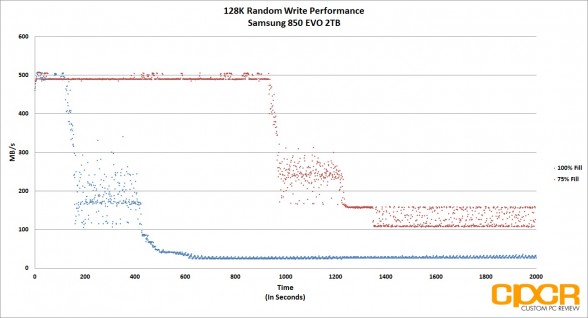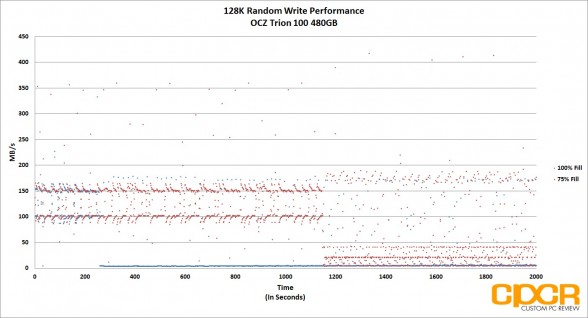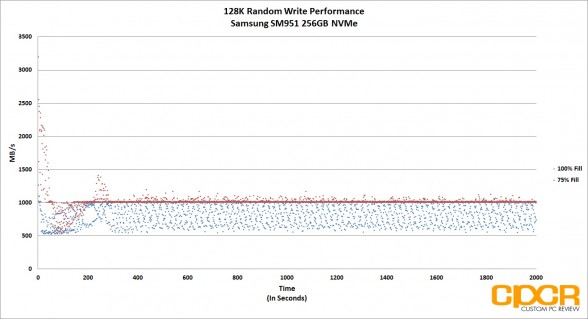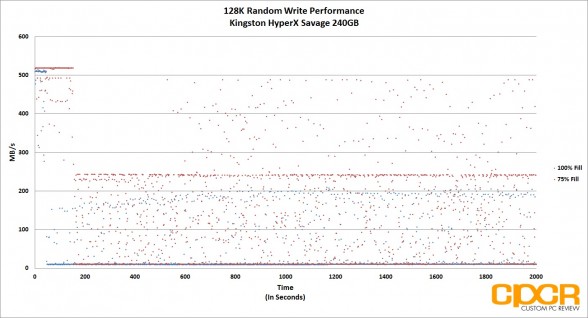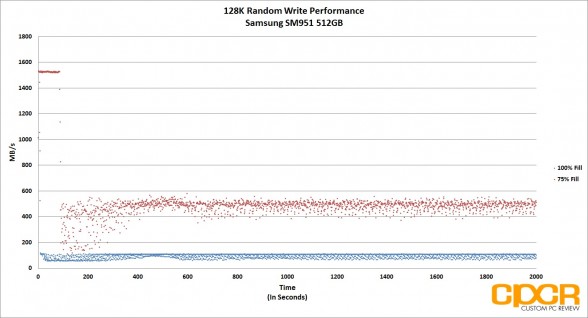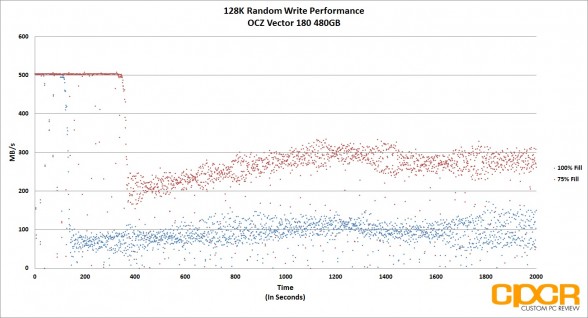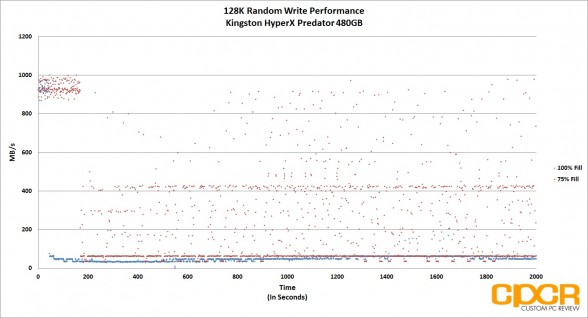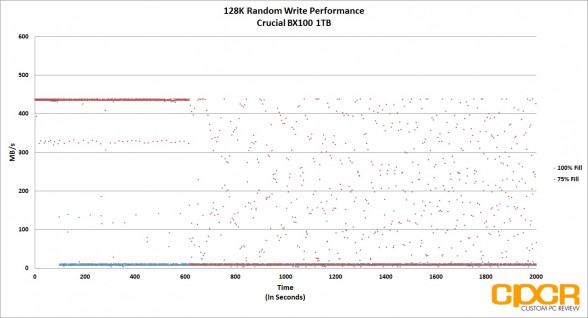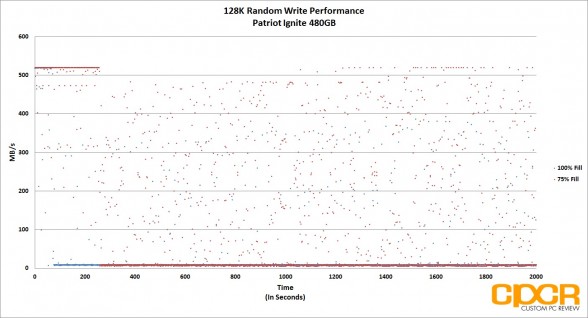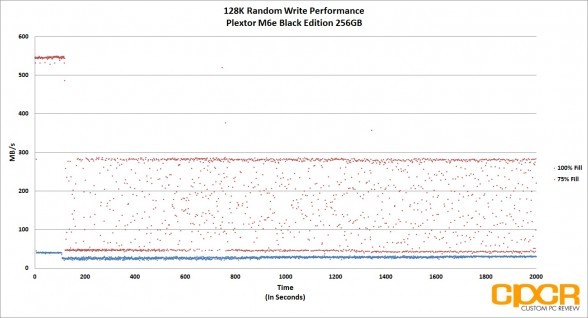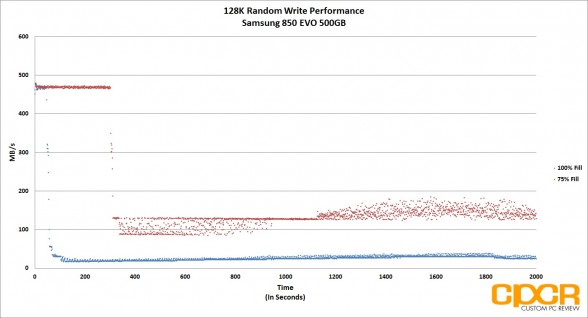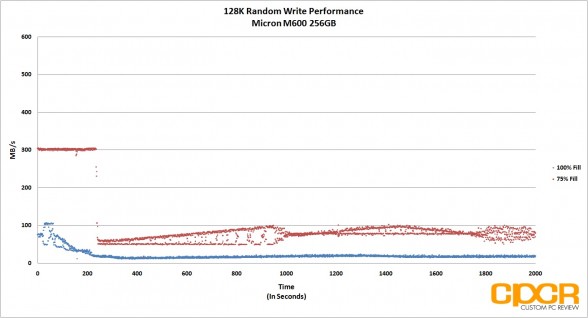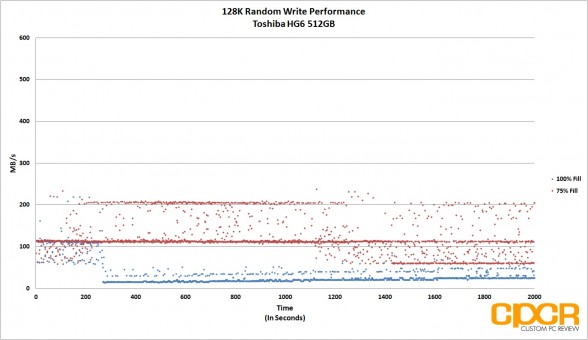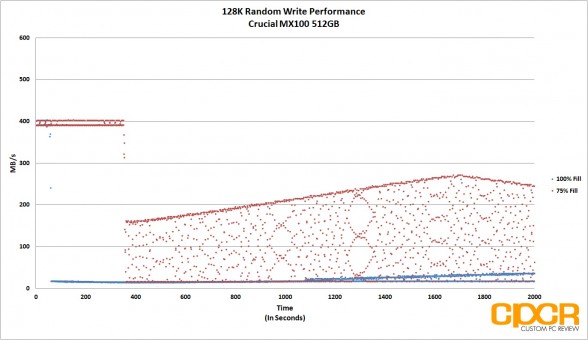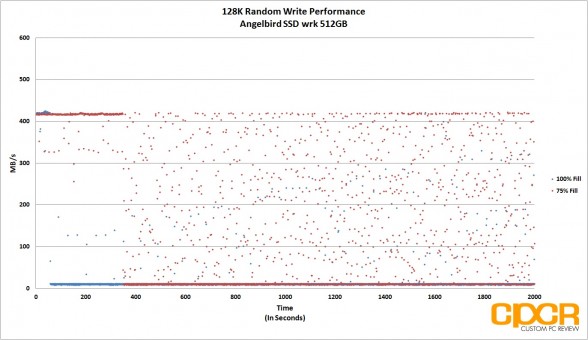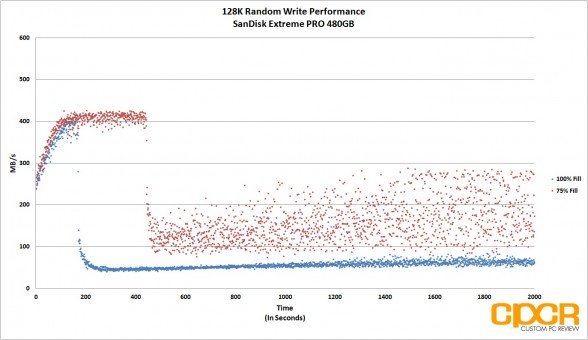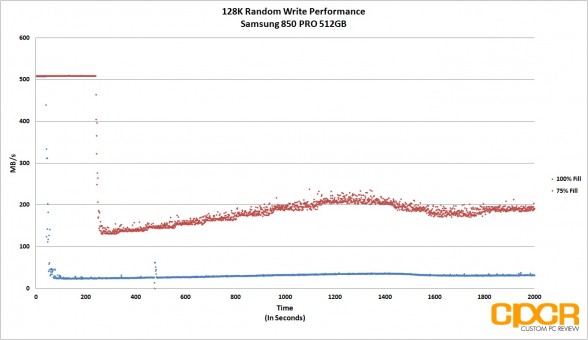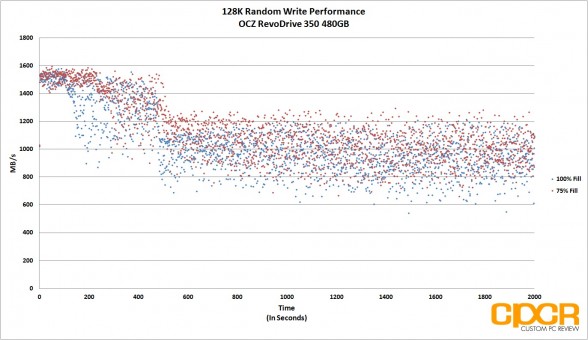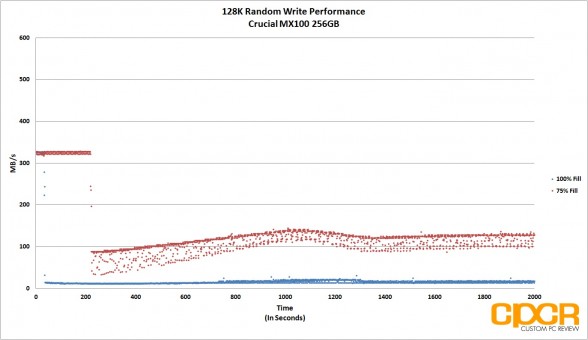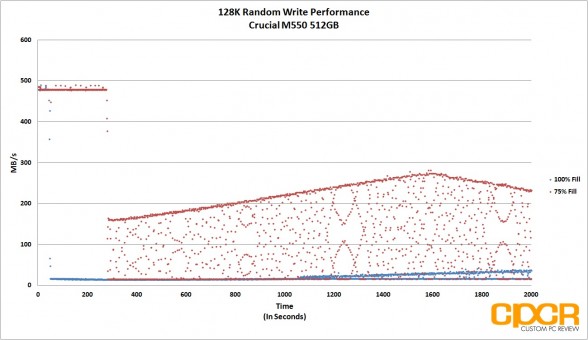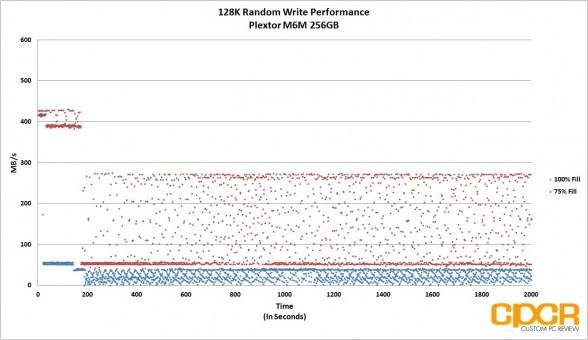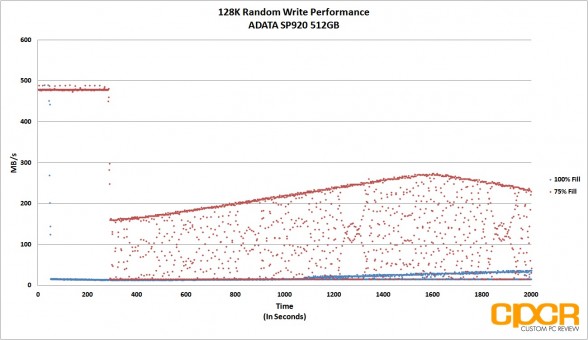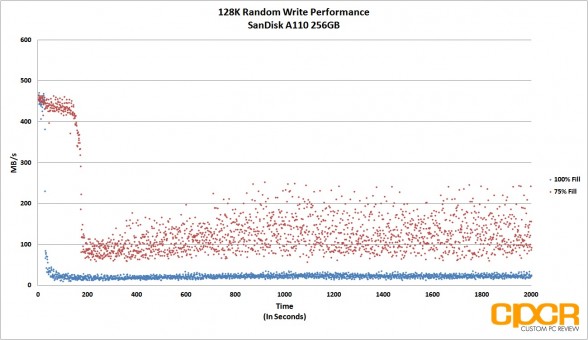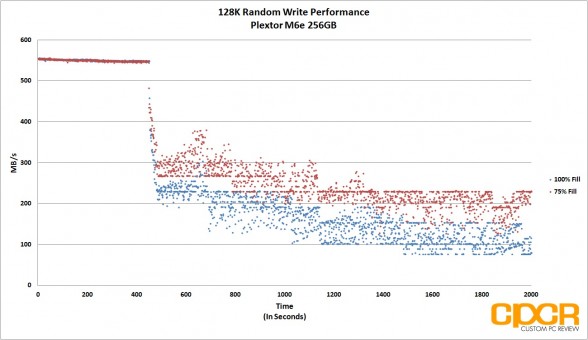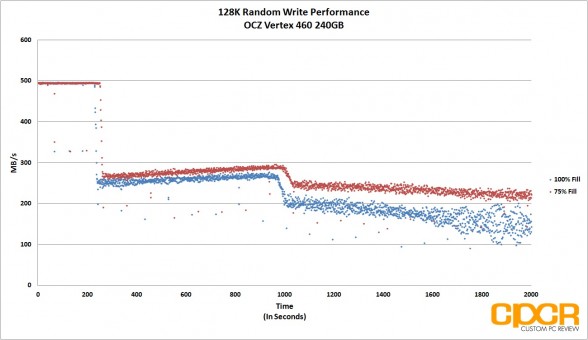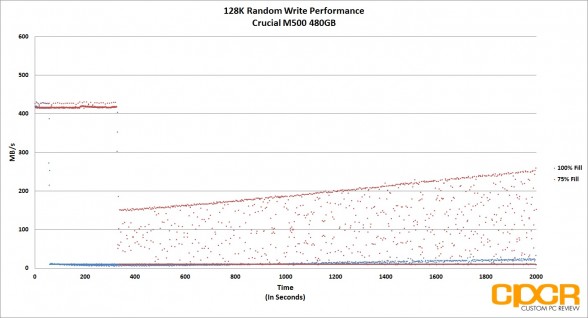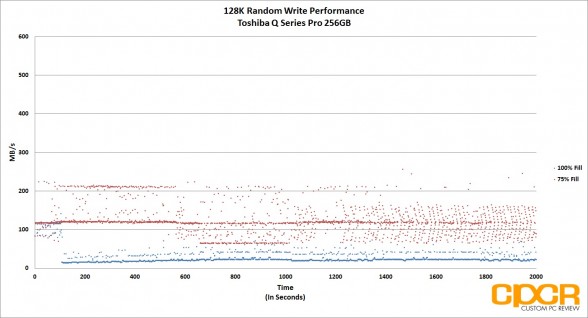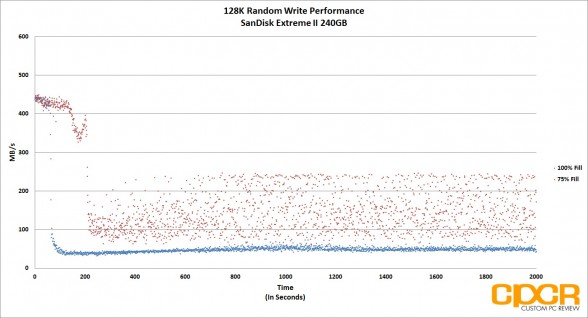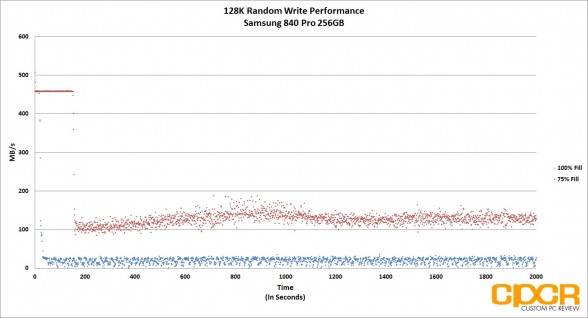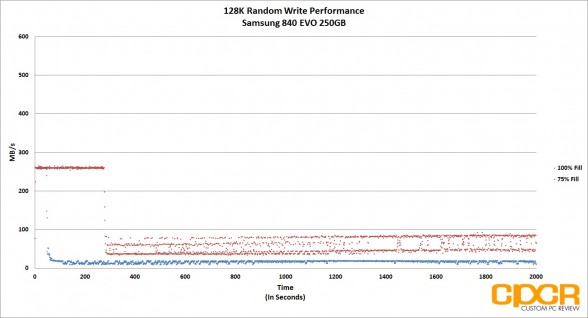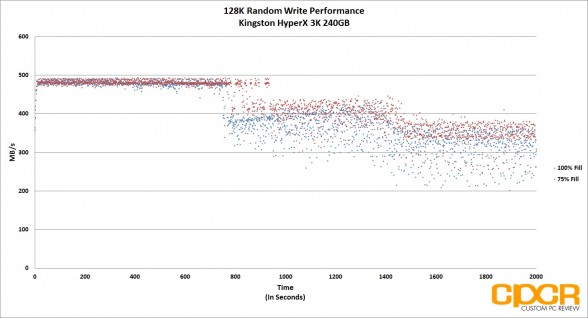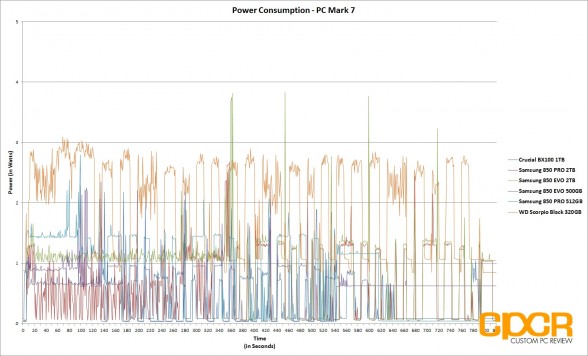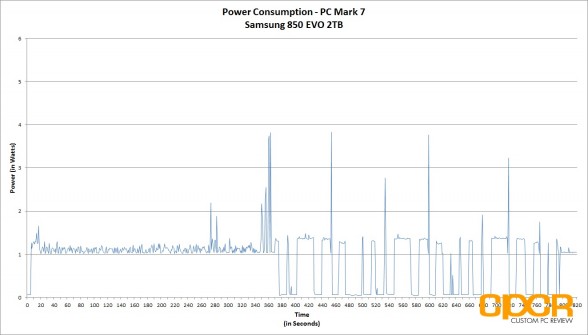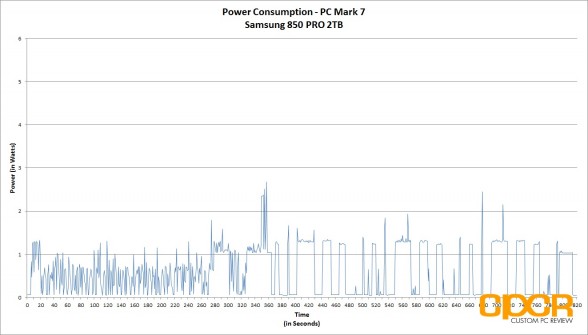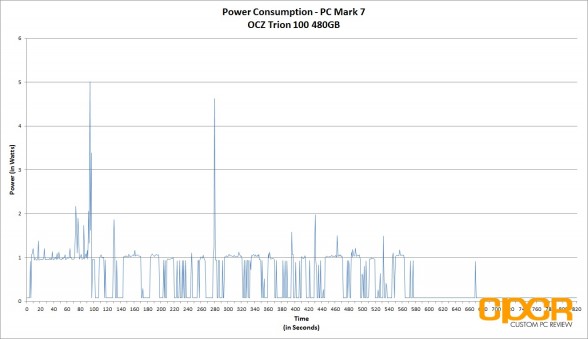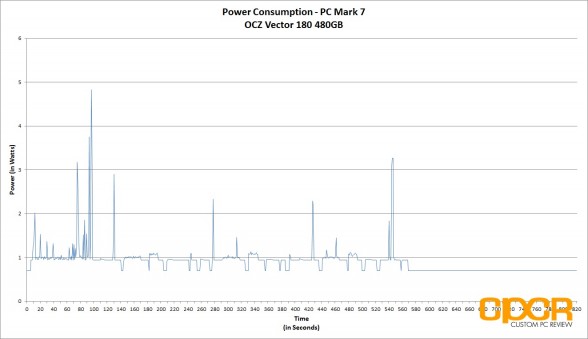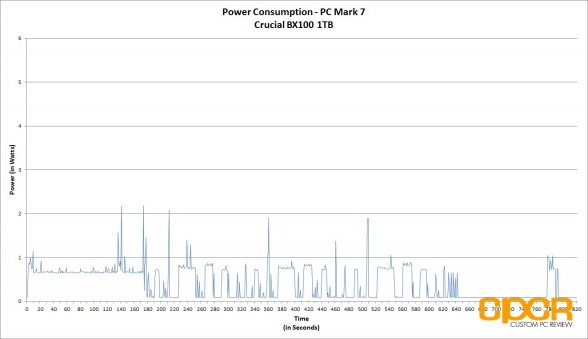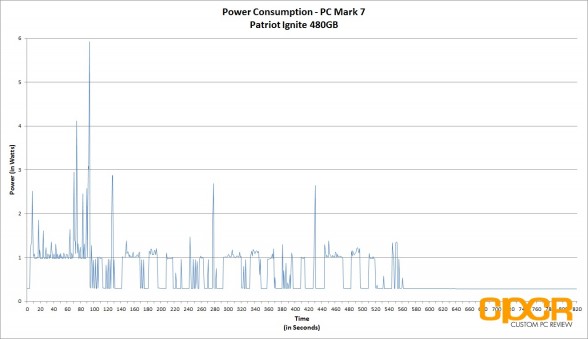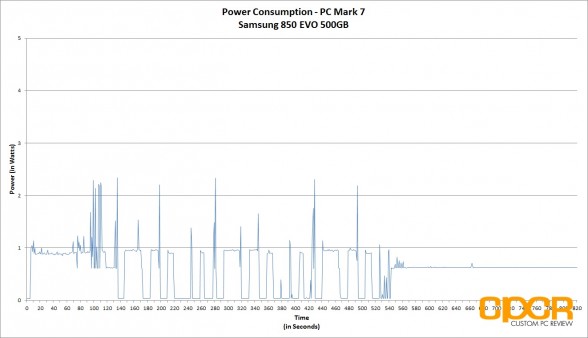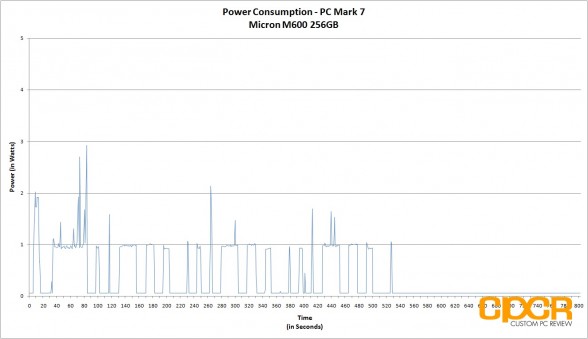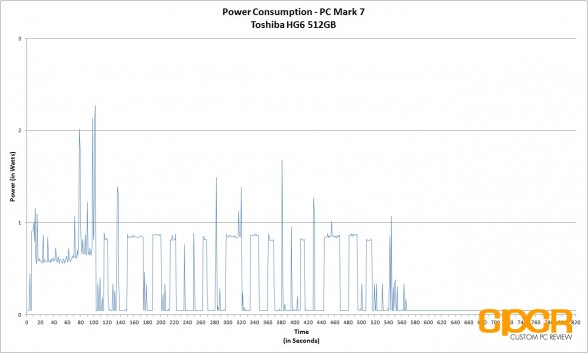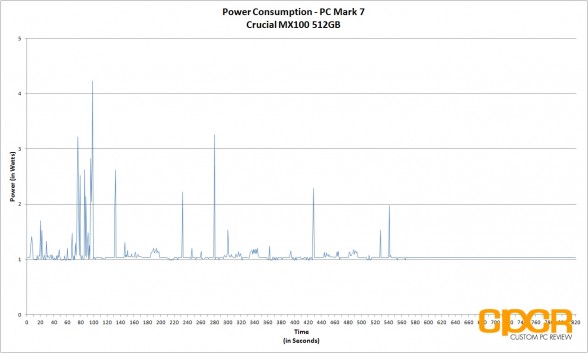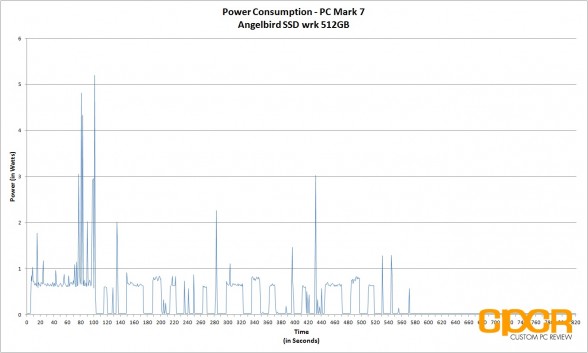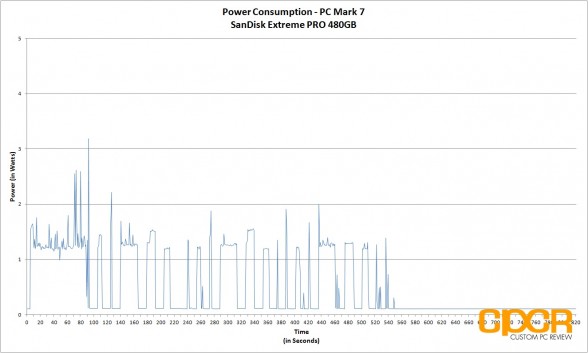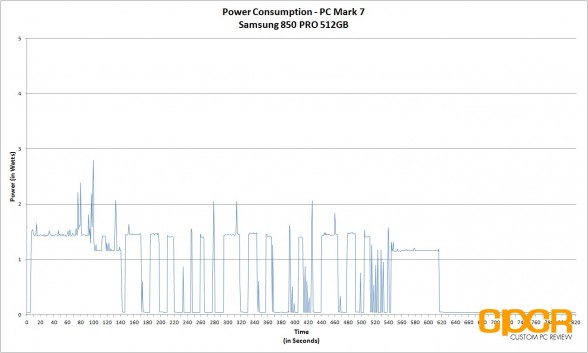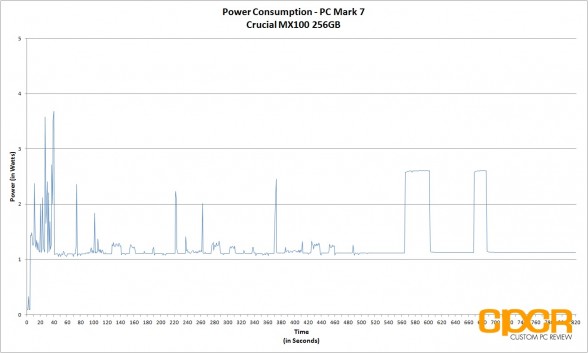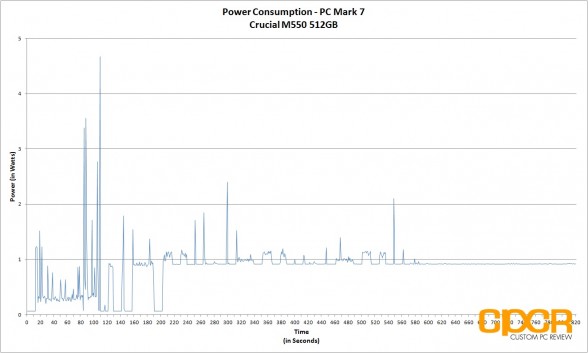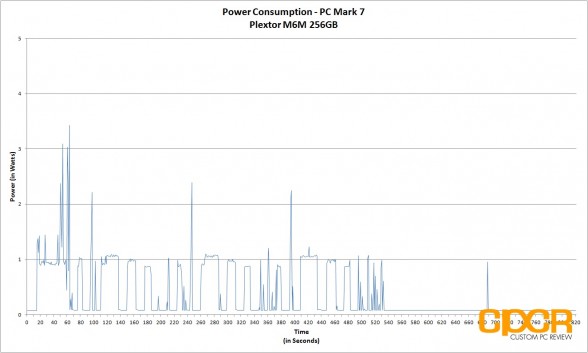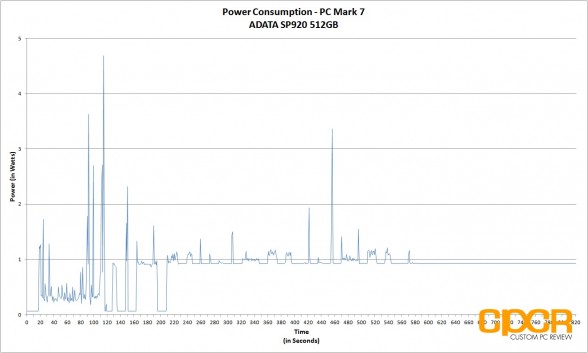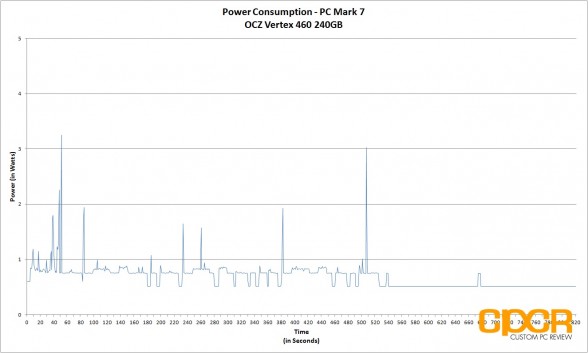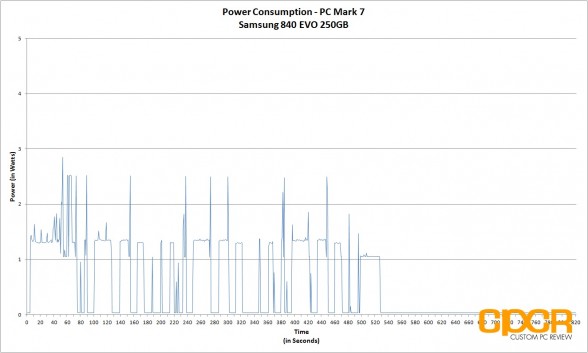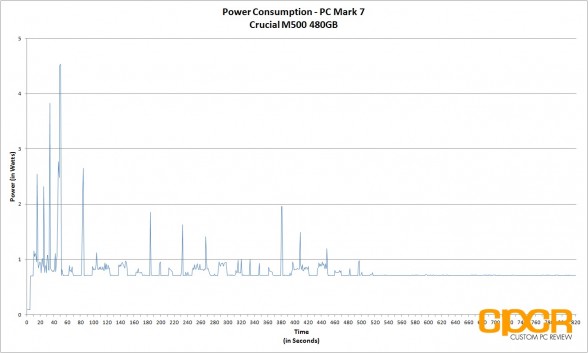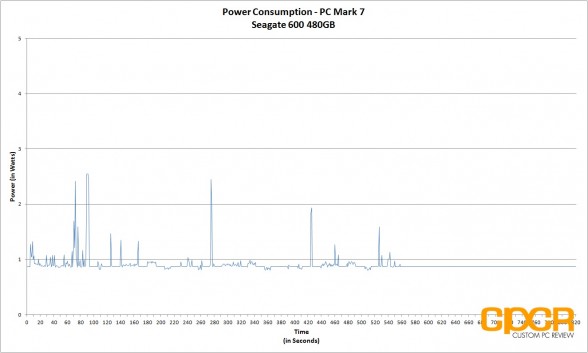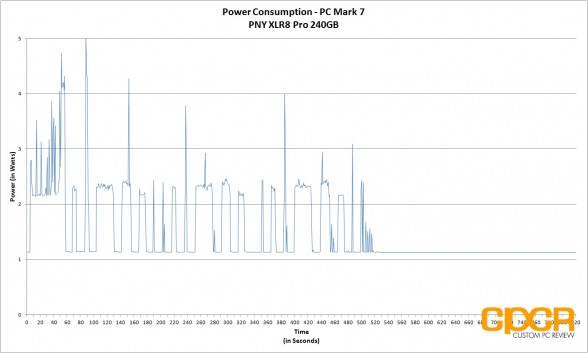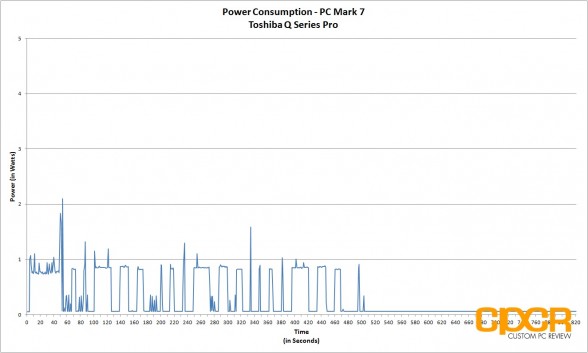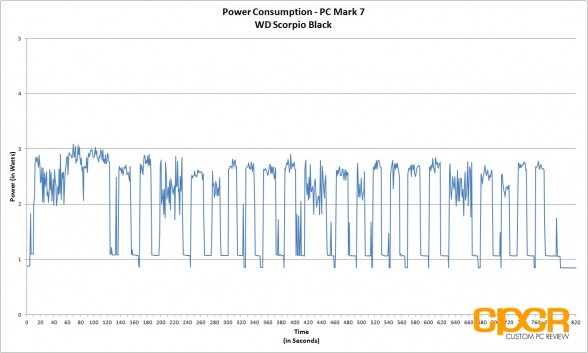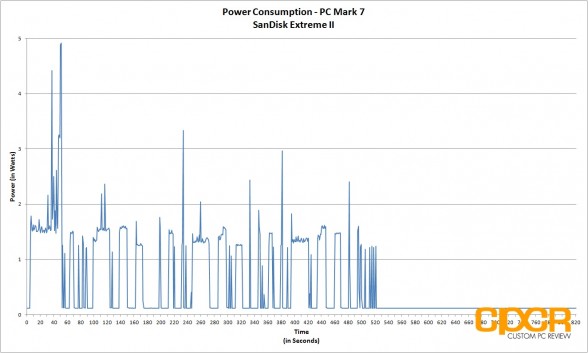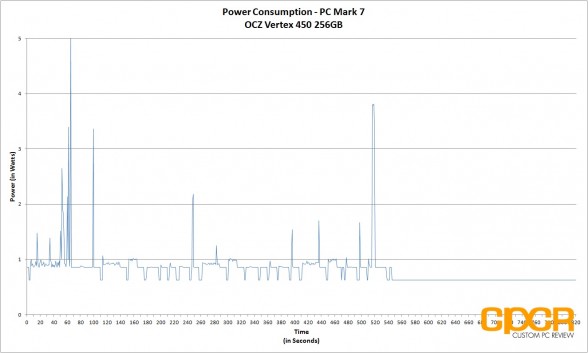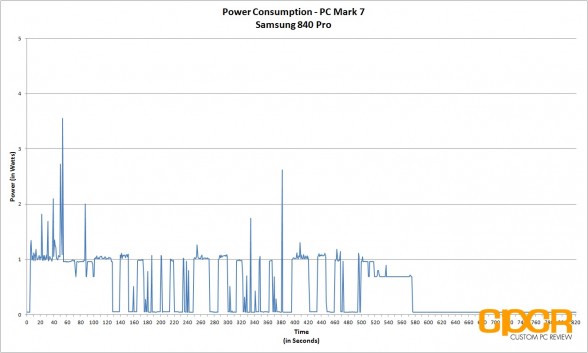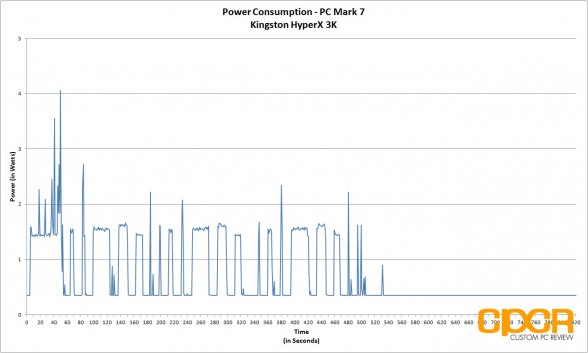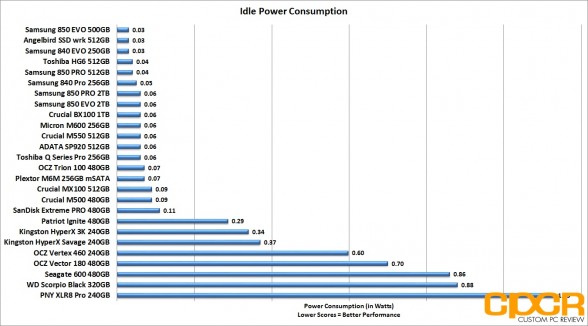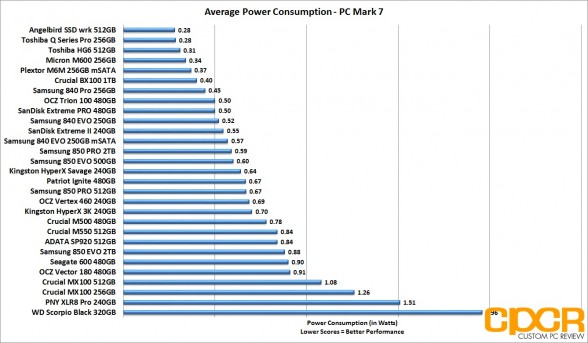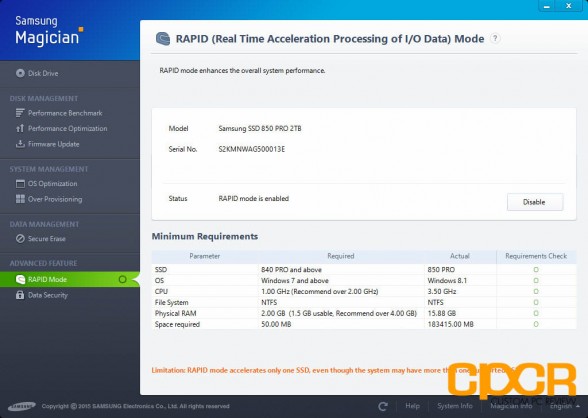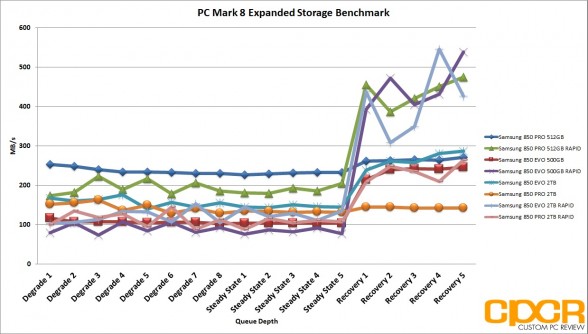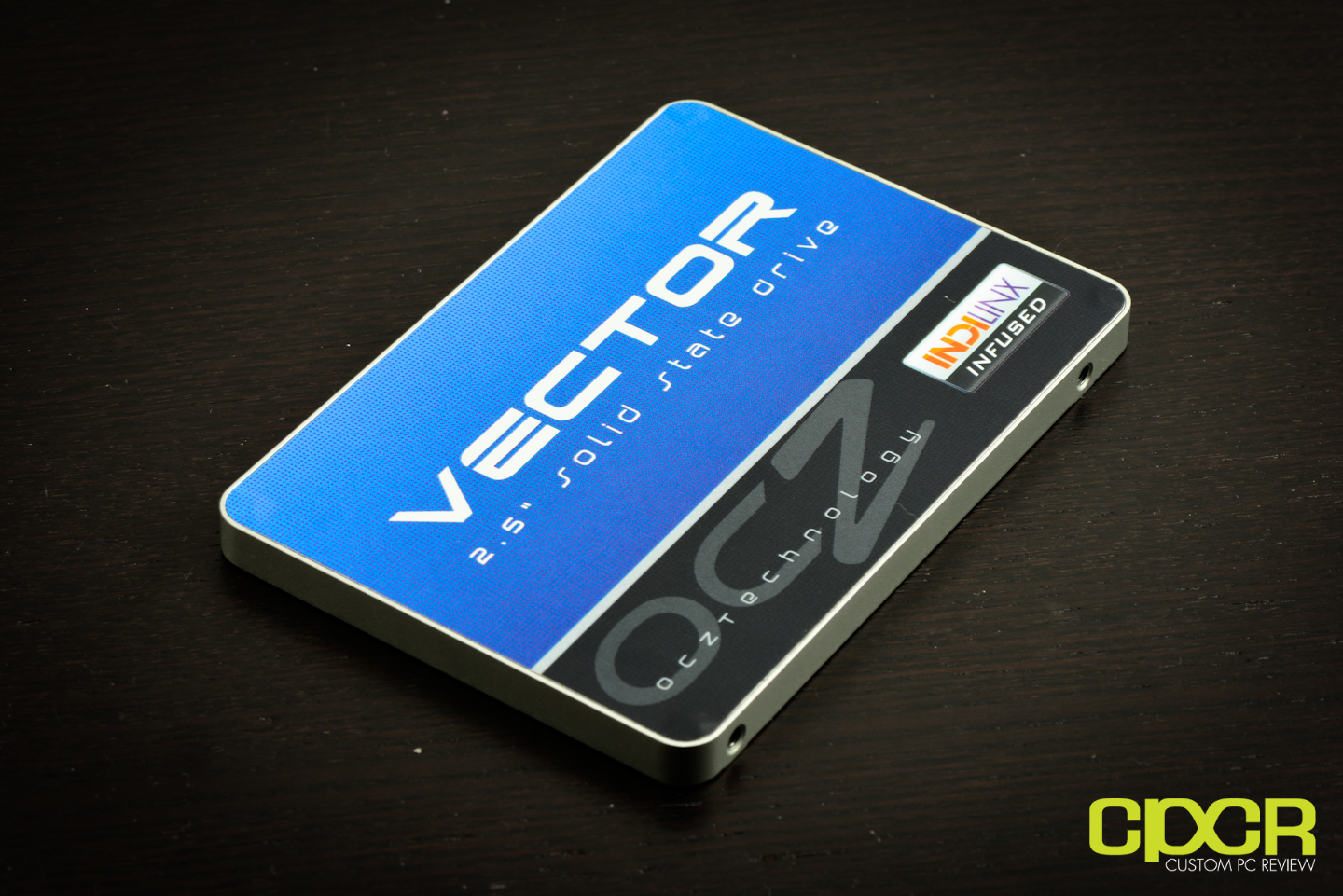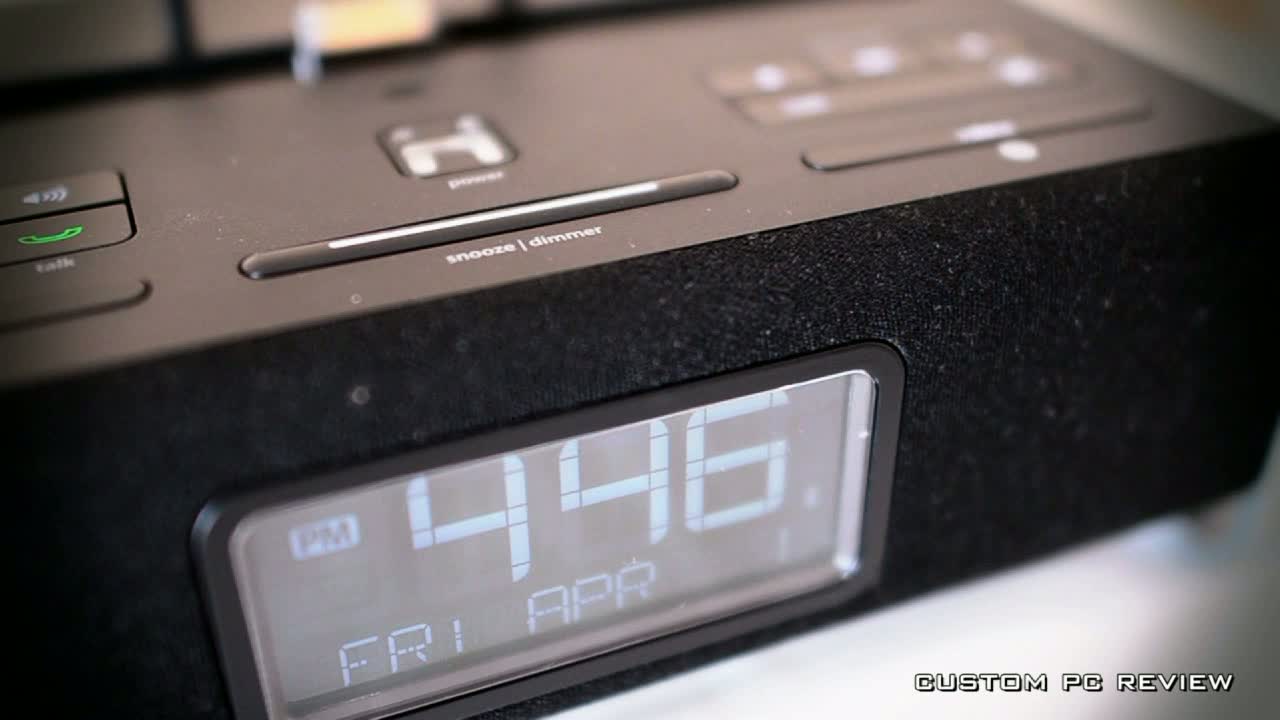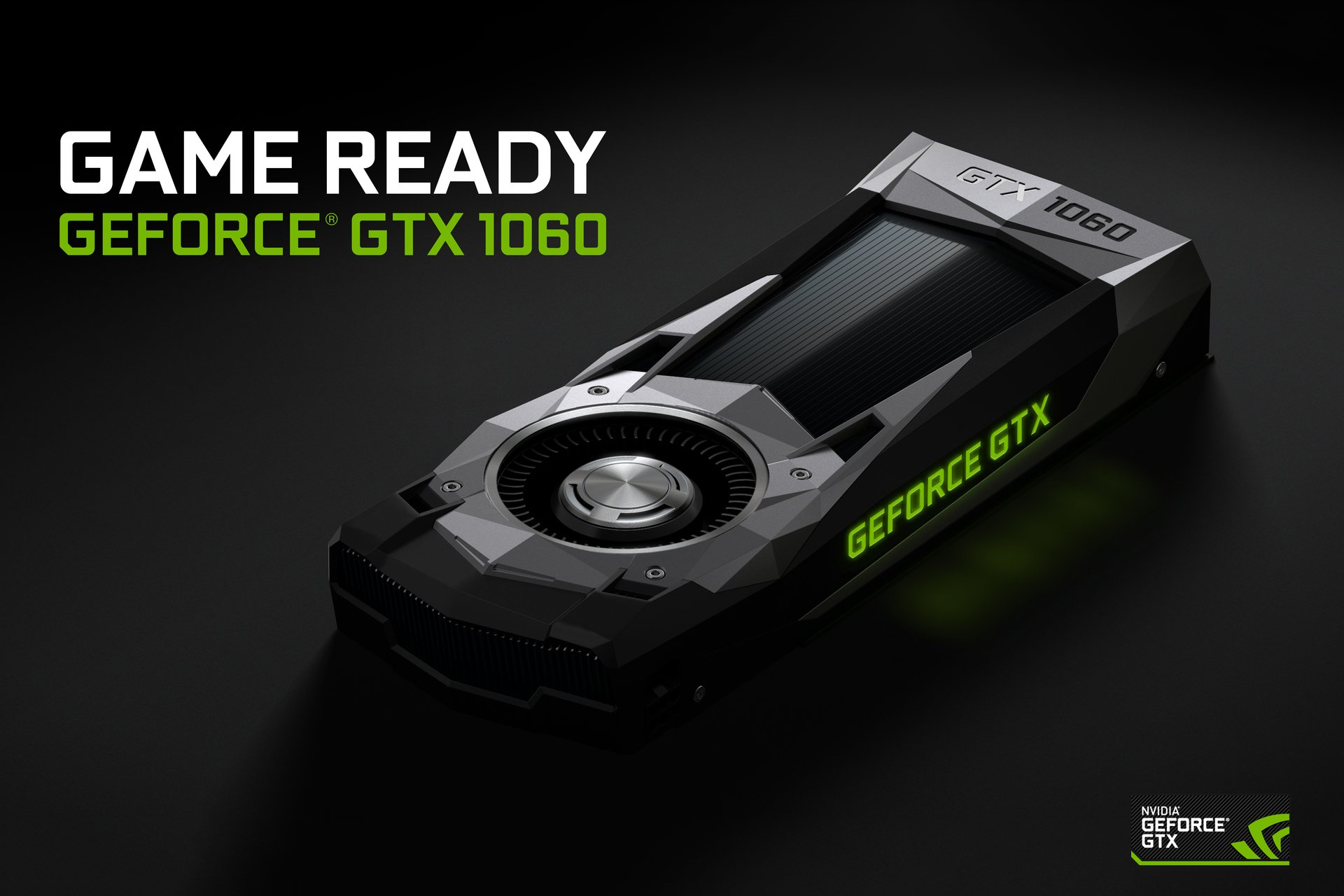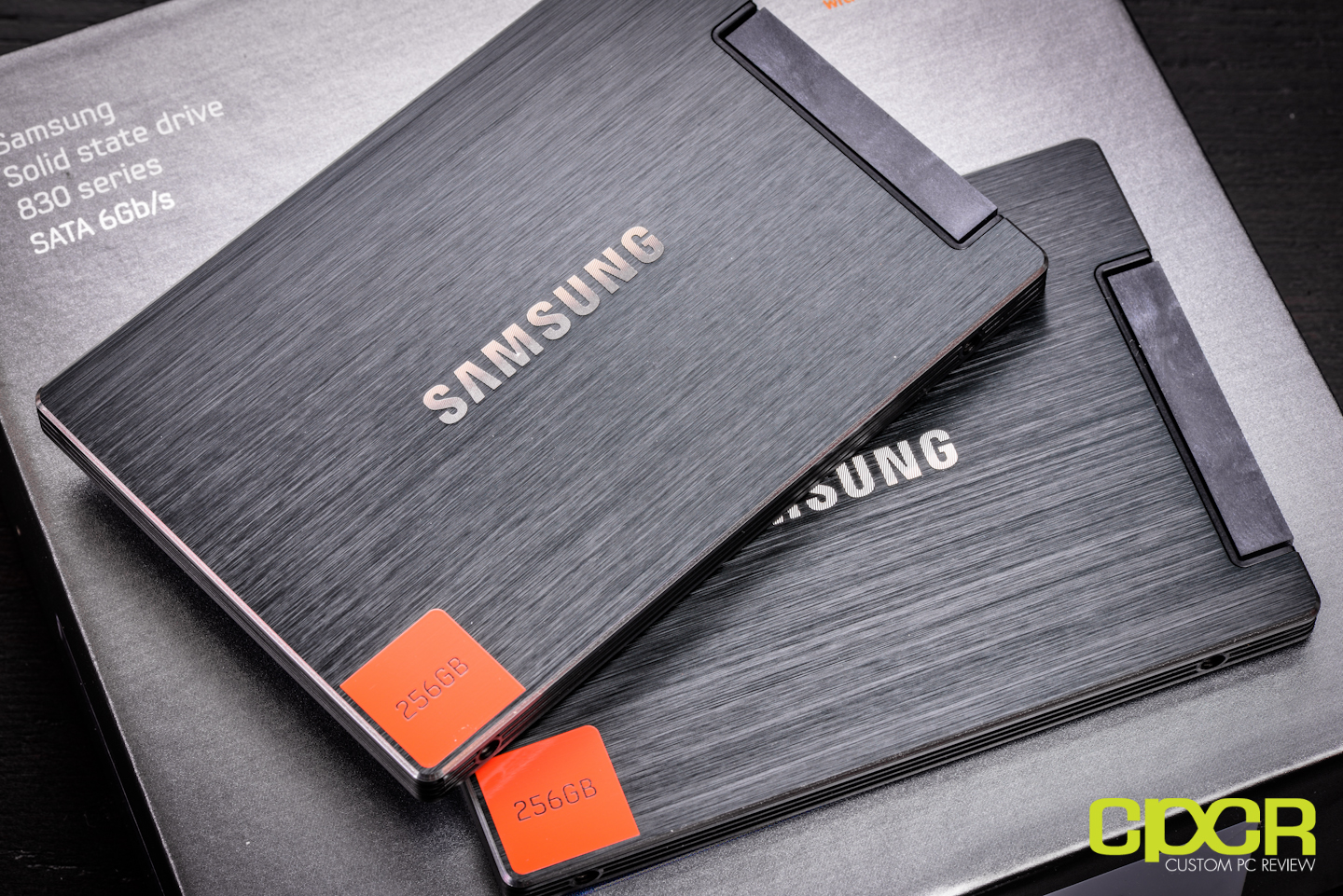[section label=1. Introduction]
2TB Consumer SSDs Are Here
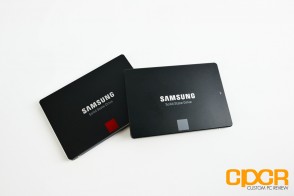 Generally when I talk to people about SSDs and how great they are, two concerns almost always pop up. The first concern of course is cost. While cost has been getting more and more competitive in the past few years, SSDs are still relatively expensive compared to HDDs. The second concern is capacity. Whereas HDD capacities practically start at 500GB to 1TB, SSDs generally cap out at 512GB or 1TB. That said, whereas it was almost impossible to find SSDs under the ~$0.50/GB pricepoint just two years ago, it’s relatively easy to find drives down in the ~$0.30/GB pricepoint today. In the next few years, prices are expected to continue to drop as NAND density increases which should not only lead to higher capacity SSDs, but also lead to price parity with HDDs sometime in the future.
Generally when I talk to people about SSDs and how great they are, two concerns almost always pop up. The first concern of course is cost. While cost has been getting more and more competitive in the past few years, SSDs are still relatively expensive compared to HDDs. The second concern is capacity. Whereas HDD capacities practically start at 500GB to 1TB, SSDs generally cap out at 512GB or 1TB. That said, whereas it was almost impossible to find SSDs under the ~$0.50/GB pricepoint just two years ago, it’s relatively easy to find drives down in the ~$0.30/GB pricepoint today. In the next few years, prices are expected to continue to drop as NAND density increases which should not only lead to higher capacity SSDs, but also lead to price parity with HDDs sometime in the future.
Since cost and capacity have always been some of the biggest concerns, we always raise these concerns with the SSD vendors whenever we get a chance. As such, we learned back at CES that Samsung had the capability of producing 2TB SSDs, but at the time the cost would be prohibitively expensive to sell to the mass market. With Samsung’s 3D V-NAND process now mature, stable, and cost effective enough for mass market production, Samsung is releasing both their 850 EVO and 850 PRO SSDs at the 2TB capacity.
Samsung 850 EVO Specifications
| Manufacturer | Samsung | Samsung | Samsung | Samsung | Samsung |
|---|---|---|---|---|---|
| Model | 850 EVO | 850 EVO | 850 EVO | 850 EVO | 850 EVO |
| Form Factor | 2.5″ 7mm | 2.5″ 7mm | 2.5″ 7mm | 2.5″ 7mm | 2.5″ 7mm |
| Capacity | 120GB | 250GB | 500GB | 1TB | 2TB |
| Controller | Samsung MGX | Samsung MGX | Samsung MGX | Samsung MEX | Samsung MHX |
| NAND | Samsung 32-layer TLC 3D V-NAND | Samsung 32-layer TLC 3D V-NAND | Samsung 32-layer TLC 3D V-NAND | Samsung 32-layer TLC 3D V-NAND | Samsung 32-layer TLC 3D V-NAND |
| Sequential Reads | 540 MB/s | 540 MB/s | 540 MB/s | 540 MB/s | 540 MB/s |
| Sequential Writes | 520 MB/s | 520 MB/s | 520 MB/s | 520 MB/s | 520 MB/s |
| 4K Random Read | 94,000 | 97,000 | 98,000 | 98,000 | 98,000 |
| 4K Random Write | 88,000 | 88,000 | 90,000 | 90,000 | 90,000 |
| Interface | SATA 3 6GB/s | SATA 3 6GB/s | SATA 3 6GB/s | SATA 3 6GB/s | SATA 3 6GB/s |
| Endurance | 75TB | 75TB | 150TB | 150TB | 150TB |
| Warranty | 5 Years Limited | 5 Years Limited | 5 Years Limited | 5 Years Limited | 5 Years Limited |
Samsung 850 PRO Specifications
| Manufacturer | Samsung | Samsung | Samsung | Samsung | Samsung |
|---|---|---|---|---|---|
| Model | 850 PRO | 850 PRO | 850 PRO | 850 PRO | 850 PRO |
| Form Factor | 7mm, 2.5″ SATA | 7mm, 2.5″ SATA | 7mm, 2.5″ SATA | 7mm, 2.5″ SATA | 7mm, 2.5″ SATA |
| Capacity | 128GB | 256GB | 512GB | 1TB | 2TB |
| Controller | Samsung MEX | Samsung MEX | Samsung MEX | Samsung MEX | Samsung MHX |
| NAND | Samsung 32 layer 3D V-NAND | Samsung 32 layer 3D V-NAND | Samsung 32 layer 3D V-NAND | Samsung 32 layer 3D V-NAND | Samsung 32 layer 3D V-NAND |
| Sequential Reads | 550 MB/s | 550 MB/s | 550 MB/s | 550 MB/s | 550 MB/s |
| Sequential Writes | 470 MB/s | 520 MB/s | 520 MB/s | 520 MB/s | 520 MB/s |
| 4K Random Read | 100,000 IOPS | 100,000 IOPS | 100,000 IOPS | 100,000 IOPS | 100,000 IOPS |
| 4K Random Write | 90,000 IOPS | 90,000 IOPS | 90,000 IOPS | 90,000 IOPS | 90,000 IOPS |
| Interface | SATA 3 6Gb/s | SATA 3 6Gb/s | SATA 3 6Gb/s | SATA 3 6Gb/s | SATA 3 6Gb/s |
| Endurance | 150 TBW | 150 TBW | 300 TBW | 300 TBW | 300 TBW |
| Warranty | 10 Years | 10 Years | 10 Years | 10 Years | 10 Years |
For the new 2TB Samsung 850 EVO and 850 PRO, most of the drive is actually very similar to their lower capacity cousins. For the Samsung 850 EVO, it’ll be using Samsung’s 3-bit MLC 3D V-NAND while the Samsung 850 PRO will be using Samsung’s 2-bit MLC 3D V-NAND. No surprises there. The biggest change compared to the lower capacities is Samsung’s introduction of a new Samsung MHX controller which will support capacities up to 2TB.
Performance on the Samsung 850 EVO is rated at up to 540/520 MB/s sequential reads/writes and 98,000/90,000 IOPS 4K random reads/writes. Performance on the Samsung 850 PRO 2TB is rated at up to 550/520 MB/s sequential reads/writes and 100,000/90,000 IOPS 4K random reads/writes.
Warranty on the drives are still unchanged at 5 years, 150TBW on the Samsung 850 EVO while the Samsung 850 PRO 2TB gets 10 years, 300TBW.
Let’s take a closer look.
[section label=2. A Closer Look (Samsung 850 EVO 2TB)]
A Closer Look at the Samsung 850 EVO 2TB
Here’s a look at the packaging for the Samsung 850 EVO 2TB.
Included is some documentation along with the drive itself.
The 7mm, 2.5″ chassis is the same design as we’ve seen for the rest of the Samsung 850 EVO lineup.
Surprisingly, the Samsung 850 EVO 2TB only uses a 3/4 sized PCB despite carrying a whopping 2TB capacity. This suggests that with a full size PCB and a new controller, Samsung could easily go even higher on the capacities.
The controller on the Samsung 850 EVO 2TB is the Samsung MHX (S4LP052X01-8030) which is a new controller designed for the 2TB Samsung 850 EVO and 850 PRO. Aside with some firmware improvements, the biggest change here is that the controller supports up to 2GB of DDR3, which will allow for capacities up to 2TB.
NAND onboard the Samsung 850 EVO 2TB is Samsung’s 3-bit MLC (TLC) 3D V-NAND. There’s only a total of 8 NAND packages onboard so each package contains 256GB NAND for a total of 2048GiB. There’s also 2GB of Samsung DDR3 which serves as the onboard DRAM buffer.
[section label=3. A Closer Look (Samsung 850 PRO 2TB)]
A Closer Look at the Samsung 850 PRO 2TB
Here’s a look at the packaging for the Samsung 850 PRO 2TB.
Included is some documentation and the drive itself.
The Samsung 850 PRO 2TB uses the standard 7mm, 2.5″ casing similar to the rest of the Samsung 850 PRO lineup.
Just like what we saw with the Samsung 850 EVO 2TB, the Samsung 850 PRO 2TB only utilizes a 3/4 sized PCB.
The controller onboard the Samsung 850 PRO 2TB is the same Samsung MHX controller (S4LP052X01-8030) found on the Samsung 850 EVO 2TB.
NAND onboard is Samsung’s 2-bit per cell MLC V-NAND. Onboard there are a total of 8 NAND packages so each package contains 256GB NAND for a total of 2048GiB. Samsung also includes 2GB of Samsung DDR3 which serves as the onboard DRAM buffer.
[section label=4. Testing Setup, Drive Info, Software]
Testing Setup
| System | CyberPowerPC Gamer Xtreme 4200 |
|---|---|
| CPU | Intel Core i7-4770K |
| Motherboard | ASUS Z87-A |
| Memory | Kingston HyperX Genesis 16GB DDR3 2133MHz |
| Graphics | Intel HD4600 Graphics |
| Storage | OCZ Vertex 4 256GB |
| Power Supply | Corsair HX650 |
| Case | HSPC High Speed Tech Station |
| Optical Drive | ASUS OEM DVD Drive |
| Operating System | Windows 8.1 64 bit & CentOS 7 |
Special thanks to CyberPowerPC, Kingston, OCZ Storage Solutions and HSPC for sponsoring our test bench!
Crystal Disk Info
Samsung 850 EVO 2TB
Today we’ll be reviewing the Samsung 850 EVO 2TB with firmwre EMT01B6Q.
Samsung 850 PRO 2TB
We’ll also be reviewing the Samsung 850 PRO 2TB with firmware EXM02B6Q.
[section label=5. ATTO Disk Benchmark / AS SSD / Crystal Disk Mark]
Samsung 850 EVO, PRO 2TB Performance
ATTO Disk Benchmark v2.46
ATTO Disk Benchmark is one of the industry’s oldest and most popular benchmarks for testing disk read/write speeds. This benchmarks allows read and write testing using predefined block sizes and gives us a good idea of read/write speeds with different sized files. Most SSD manufacturers prefer using this benchmark when advertising SSDs as it tests using compressible data, which tends to yield best performance.
Samsung 850 EVO 2TB
Samsung 850 PRO 2TB
Performance Analysis
In ATTO Disk Benchmark, performance from both the Samsung 850 EVO 2TB and the Samsung 850 PRO 2TB were extremely impressive. Sequential read performance for the Samsung 850 EVO 2TB was able to reach nearly 545MB/s while sequential read performance for the Samsung 850 PRO 2TB was able to reach nearly 560MB/s. Sequential write performance on both drives reached ~535MB/s.
AS SSD Benchmark
AS SSD is a very commonly used benchmark used to measure SSD performance in sequential, 4K, 4K QD64 and latency. Tests are run using 100% incompressible data. AS SSD also outputs a final score at the conclusion of the test based off the overall performance of the drive.
Additionally, we also run AS SSD’s included compression benchmark which tests the drive using data of varying compressibility. Some SSDs such as SandForce based SSDs tend to perform significantly better when the data is compressible.
Samsung 850 EVO 2TB
Samsung 850 PRO 2TB
Performance Analysis
AS SSD performance on both drives proved to be not only similar, but very good as well. Samsung does an extremely good job on low queue depth performance which is most representative on client workloads. Data compression does not appear to affect drive performance at all.
Crystal Disk Mark 3.0.1 x64
Crystal Disk Mark is another popular benchmark which allows us to measure both sequential read/write speeds as well as random read/write speeds. With this benchmark, tests can be run using both random fill (incompressible data) and 0 fill (compressible data). Realistically in typical computer usage scenarios, data being transferred will consist of a mixture of both incompressible and compressible data.
Samsung 850 EVO 2TB
Samsung 850 PRO 2TB
Performance Analysis
Crystal Disk Mark confirms the performance we saw from ATTO Disk Benchmark and AS SSD. With version 4.1.0 of Crystal Disk Benchmark, we also get QD32 sequential performance, which will give us maximum sequential performance.
[section label=6. PC Mark 7 / PC Mark 8]
Samsung 850 EVO, PRO 2TB Performance
PC Mark 7 Storage Benchmark
The PC Mark 7 storage benchmark is a trace based benchmark that evaluates the SSD under many different real world environments such as gaming, multimedia editing, etc. PC Mark 7 uses a relatively light workload, which represents a typical mainstream client storage sub-system workload.
As of June 2015, we’ve also changed our comparison charts to use the PC Mark 7 Raw Secondary Storage Score. The raw score more effectively highlights performance differences between drives as it discounts idle time between tests.
Samsung 850 EVO 2TB
Samsung 850 PRO 2TB
Performance Analysis
In PC Mark 7, both the 2TB Samsung 850 EVO and Samsung 850 PRO performed extremely well, topping the charts as the fastest SATA drives on the market.
PC Mark 8 Expanded Storage Benchmark
With the introduction of PC Mark 8 2.0.228, Futuremark added the option for an Expanded Storage Benchmark which is literally designed to bring any storage system its absolute limits. The new PC Mark 8 Expanded Storage Benchmark takes around 24 hours to run and for our purposes, we’ll be using the consistency test which measures performance consistency, degradation tendency, and recovery speed of a storage system.
Consistency Test
Full details on the consistency test can be found in the PC Mark 8 Technical Guide here. For the more simplified version, the test is basically a near 24 hour, five phase benchmark – three of which we’ll be reporting on in our results below.
- Phase 1 is a precondition phase designed to “dirty” the drive with random data. The entire drive is filled twice to the capacity of the drive.
- Phase 2 is a degrade phase where the drive is hammered with tons of random data followed by a performance test run. This is done 8 times.
- Phase 3 is the steady state phase where the drive is once again hammered with tons of random data followed by a performance test run. This is done 5 times.
- Phase 4 is the recovery phase where the drive is given 5 minutes to rest followed by a performance test run. This is done 5 times.
- Phase 5 is the clean up phase where the drive is simply secure erased.
Performance Analysis
In the significantly heavier PC Mark 8 expanded storage benchmark, the Samsung 850 EVO 2TB performed extremely well, significantly outperforming its lower capacity cousin. This is more than likely due to the much larger TurboWrite cache, which allows the Samsung 850 EVO 2TB to sustain high performance writes for a much larger amounts of data. The Samsung 850 PRO on the other hand provided worse performance than was expected, getting significantly outperformed by its lower capacity cousin as well as the Samsung 850 EVO 2TB.
[section label=7. FIO – FOB]
Samsung 850 EVO, PRO 2TB Performance
FIO (Flexible I/O Tester)
FIO, which stands for Flexible I/O Tester, is basically what its name says – a flexible I/O tester / I/O workload generator. Whereas all the benchmarking tools we’ve used previously are fantastic, easy to use benchmarking tools that provide a good snapshot of SSD performance, they do lack a lot of versatility, especially for more complex and in-depth operations such as custom queue depths, block sizes, test run times, etc. While the testing that follows may not pertain to typical consumer usage, they do help give us a much more in-depth look at each individual product’s strengths and weaknesses when they’re pushed to the limits.
FIO – FOB (Fresh Out of the Box) Testing
When SSDs are brand new and Fresh Out of the Box, they’re generally able to perform at or outperform their advertised speeds, but unlike traditional hard drives, performance on SSDs begin to degrade over time as they become more and more used. This is because while SSDs are new, all bits on the SSD are empty, so they can instantly be programmed with data. However, once data gets programmed in, even if it’s deleted in the filesystem the actual data will still stay programmed on the NAND itself unless some sort of garbage collection routine comes in to wipe the data. Unfortunately, in order to write new data onto “dirty” NAND, the NAND first needs to go through an erase cycle to erase the old data before a program cycle can happen to program new data, which as you may imagine takes more time than just a simple program cycle. As this only happens when writing new data onto the SSD, you’ll generally see less performance degradation on reads and more performance degradation on writes.
For our FOB testing, we run a secure erase on the SSD then run each test sans any preconditioning. This will provide us with the highest level of performance the SSD is capable of and is likely never to be seen ever again once the SSD goes into a used state.
Our testing will include 4K read testing, 4K write testing, and 4K 70/30 read/write mix testing at queue depths of 1,2,4,8,16,32,64,128,256. The reason we’ve also included 4K 70/30 read/write mix testing is simply because most real world workloads will always fall somewhere between 0% write and 100% write rather than one or the other. Since client usage is much more read heavy, we’ll be using the 70/30 read/write mix.
For general client usage, performance will fall somewhere between queue depths of 1-4 whereas servers and other enterprise applications will easily see queue depths of 32 or greater.
Performance Analysis
Fresh out of the box, 4K random read and write performance across both 2TB Samsung SSDs are nearly identical. Both drives were just short of 100,000 IOPS 4K random reads and 90,000 IOPS 4k random writes. Mixed 4K read/write performance was excellent as well with both drives easily reaching 95,000 IOPS.
[section label=8. FIO – Steady State]
Samsung 850 EVO, PRO 2TB Performance
FIO – Steady State Testing
After prolonged use of an SSD, it will reach “steady state” where performance levels off to a minimum level. The FOB state is the “best case scenario” for SSD performance while “steady state” is going to be your worst. Here, we ran the exact same set of benchmarks we just completed in the FOB state; except this time around, we’ll be preconditioning the drive by filling 100% of the drive’s LBAs with two sequential passes of 128k data followed by hammering the drive for six hours with 4K random data prior to actual testing.
Performance Analysis
Steady state performance on both the Samsung 850 EVO 2TB and PRO 2TB were very good although it does seem that the higher capacities are slightly slower at the lower queue depths. That being said, both drives were able to reach 98,000 IOPS 4K random reads and 8,500 IOPS 4K random writes. Mixed workload performance maxed out at 25,000 IOPS.
[section label=”9. FIO – 4K Random Write Consistency”]
Samsung 850 EVO, PRO 2TB Performance
FIO 4K Random Write Consistency Testing
Another one of the benefits of testing with FIO is the flexibility of running consistency tests, which is one of the most important metrics when considering SSDs going forward. Looking at the results of our benchmarks such as ATTO Disk Benchmark and Crystal Disk Benchmark, we can see that practically every top tier SSD is capable of saturating SATA 6Gb/s in the FOB state. However, what really differentiates these SSDs is their ability to hold a certain level of performance even after extended periods of use.
For our consistency testing, we used a fairly standard method, which includes both filling up 75% of capacity as well as 100% capacity twice with sequential 128k data followed by the actual test itself, which is simply running 4K random writes at a queue depth of 32. By recording the IOPS every second for 2,000 seconds, we’re able to get a good look at what kind of performance can be expected when the drive is relatively new, when it’s heading towards steady state, and when it’s actually in steady state.
[tabgroup]
[/tabgroup]Performance Analysis
Performance consistency on both the Samsung 850 EVO 2TB and the Samsung 850 PRO 2TB were among the best we’ve seen once the drives reach steady state. Additionally, thanks to the significantly larger TurboWrite cache on the Samsung 850 EVO 2TB, performance between the Samsung 850 EVO 2TB and the Samsung 850 PRO 2TB were quite similar.
[section label=”10. FIO – 4K Random Write Latency”]
Samsung 850 EVO, PRO 2TB Performance
FIO 4K Random Write Latency Testing
Another metric that’s becoming increasingly important in SSDs is its ability to keep latency low despite being subjected to a heavy workload. Even if a SSD were capable of ultra high and ultra consistent IOPS performance, if latency were high, users would still feel that the drive is slow. Ideally, SATA SSDs should always be capable of latencies under 50ms, even during heavy workloads.
For latency testing, we’ll be using the exact same testing parameters as IOPS consistency testing, except instead of recording IOPS every second, we’ll be recording latency.
[tabgroup]
[/tabgroup]Performance Analysis
Latency on the Samsung 850 EVO 2TB and the Samsung 850 PRO 2TB was excellent as well with both drives coming in at under 20ms. Latency on these large capacity drives are even lower than the latencies reported on the lower capacity drives.
[section label=”11. FIO – 128K Random Write”]
Samsung 850 EVO, PRO 2TB Performance
FIO 128K Random Write Consistency Testing
In addition to testing 4K random write consistency, we’ll also test for 128K random write consistency to see how well a SSD is able to hold itself to a level of performance when getting hammered with larger file transfers.
Testing methodology is very similar to our testing for 4K random write consistency. We use a fairly standard method, which includes both filling up 75% of capacity as well as 100% capacity twice with sequential 128k data followed by the actual test itself, which is running 128K random writes at a queue depth of 32. By recording the IOPS every second for 2,000 seconds, we’re able to get a good look at what kind of performance can be expected when the drive is relatively new, when it’s heading towards steady state, and when it’s actually in steady state.
[tabgroup]
[/tabgroup]Performance Analysis
128K write consistency on the Samsung 850 EVO 2TB and the Samsung 850 PRO 2TB were slightly worse than the lower capacity drives, but they’re still very good among competing SATA SSDs. The higher capacity and larger amounts of overprovisioning however does help significantly in maintaining performance for a much longer period of time before performance degrades into steady state.
[section label=12. Power Consumption]
Samsung 850 EVO, PRO 2TB Power Consumption
Previously, our power consumption analysis only tested for idle and maximum load power consumption, but we felt that this was a bad way to accurately measure power consumption. The reason for this is because SSDs tend to be bursty while in operation and will spike in power usage, but only for very short periods of time. As such, many of our SSDs appeared to have even higher power consumption than traditional hard drives, which is untrue.
In order to better represent a drive’s power consumption, our solution was to run a test closer to the real-world and record a trace of the exact power consumption during testing. Since PC Mark 7 has been recognized by the industry as a fantastic real-world benchmark, we’ll be recording the drive’s power consumption while running the benchmark.
All tests below are measured by our B&K Precision 5491B Bench Multimeter tapped directly into the 5v line running from the power supply to the drive. All testing here is conducted with “HIPM (Host Initiated Power Management)/DIPM (Device Initiated Power Management)” enabled and “AHCI Link Power Management – Adaptive” set to 0 milliseconds for maximum power efficiency.
[tabgroup]
[/tabgroup]Performance Analysis
Power consumption on both the Samsung 850 EVO and 850 PRO 2TB drives idled at 0.06w which is a bit higher than what we saw with the lower capacity versions of those drives. Since higher capacity drives requires more power for the additional DRAM and NAND, this was expected despite the fact that Samsung is using slightly more energy efficient DDR3L memory.
Average power consumption was also quite a bit higher with the Samsung 850 EVO 2TB coming in at 0.88w in a run of PC Mark 7. The Samsung 850 PRO 2TB however averaged 0.59w which is slightly lower than what we saw with the 512GB version of the drive.
[section label=13. RAPID Mode]
Samsung 850 EVO, PRO 2TB RAPID
I’m not going to go into too much detail on RAPID mode as I’ve covered it in my previous reviews of the Samsung SSDs (Samsung 840 EVO, Samsung 850 PRO). RAPID is a software included in Samsung Magician that leverages unused system resources to improve performance of the storage subsystem. This mostly involves just caching data in system memory. Both the Samsung 850 EVO and the Samsung 850 PRO have access to the RAPID mode.
PC Mark 8 Expanded Storage Benchmark
In PC Mark 8’s expanded storage benchmark, it’s pretty clear where the performance gains are seen the most. Whereas drive performance in RAPID mode is slightly slower than drive performance without RAPID mode in the degrade and steady state phases which hammer the drives constantly with random, difficult to cache data, drive performance is extremely high in the recovery phase where the same test is repeated with ample time for caching inbetween.
[section label=14. Conclusion]
Samsung 850 EVO, PRO 2TB Conclusions
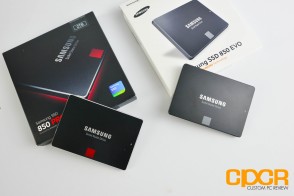 Since we’ve already had the opportunity to review the lower capacity versions of both the Samsung 850 EVO and the Samsung 850 PRO, we already know that they’re fantastic drives. That being said, the higher capacity drives did show slightly different performance and power characteristics compared to their lower capacity cousins, so we’ll go ahead and address that here.
Since we’ve already had the opportunity to review the lower capacity versions of both the Samsung 850 EVO and the Samsung 850 PRO, we already know that they’re fantastic drives. That being said, the higher capacity drives did show slightly different performance and power characteristics compared to their lower capacity cousins, so we’ll go ahead and address that here.
In terms of performance, the Samsung 850 EVO 2TB performed very well as expected. With the much larger TurboWrite cache, performance can be maintained at a high level for a much longer period of time as well which, for most client applications, will make the Samsung 850 EVO 2TB feel no different from an enthusiast SSD even when pushed for an extended period of time. The Samsung 850 PRO 2TB on the other hand had excellent performance as well and the additional capacity didn’t seem to change its performance characteristics a whole lot. That said, the Samsung 850 PRO 2TB did exhibit some strange behavior as it experienced slower performance than the 512GB version of the drive in PC Mark 8 Expanded Storage Benchmark and it did experience slower performance in certain benchmarks at lower queue depths.
Power consumption on both the Samsung 850 EVO 2TB and the Samsung 850 PRO 2TB was slightly higher as expected of a higher capacity drive. More NAND and more memory necessitates more electricity which isn’t too surprising however, idle power consumption was still extremely competitive at just 0.06w. Active power consumption while running PC Mark 7’s storage benchmark on the other hand was slightly higher than expected, but most client use of SSDs is in idle, so this isn’t a huge problem even for mobile users.
| Manufacturer | Samsung | Samsung |
|---|---|---|
| Model | 850 EVO | 850 PRO |
| SKU | MZ-75E2T0B/AM | MZ-7KE2T0BW |
| Capacity | 2TB | 2TB |
| Street Price | $797.99 | $999.99 |
| Price/GB | ~$0.40 | ~$0.50 |
| Check Price | Click Here | Click Here |
The Samsung 850 EVO 2TB can currently be found online for ~$797.99 (~$0.40/GB) and the Samsung 850 PRO 2TB can currently be found online for ~$999.99 (~$0.50/GB). Pricing is actually very good considering currently there are no competitors in the marketplace for a 2TB SSD.
Overall the Samsung 850 EVO and the Samsung 850 PRO are not only best in class SSDs, but they’re also the first to be readily available in the 2TB capacities for the consumer market. They have great performance, great power consumption characteristics, best in class features including TCG Opal/eDrive encryption support, and more. Those looking for 2TB capacities will find that both drives are excellent choices, but the Samsung 850 EVO 2TB clearly does stand out as the better purchase with great pricing and plenty of performance for even the most demanding client applications. Most client users will find no difference between the Samsung 850 EVO 2TB and the Samsung 850 PRO 2TB with the exception of the $200 difference in cost. Highly recommended!
Samsung 850 EVO 2TB
Samsung 850 PRO 2TB
Sample provided by: Samsung
Availability: Amazon

